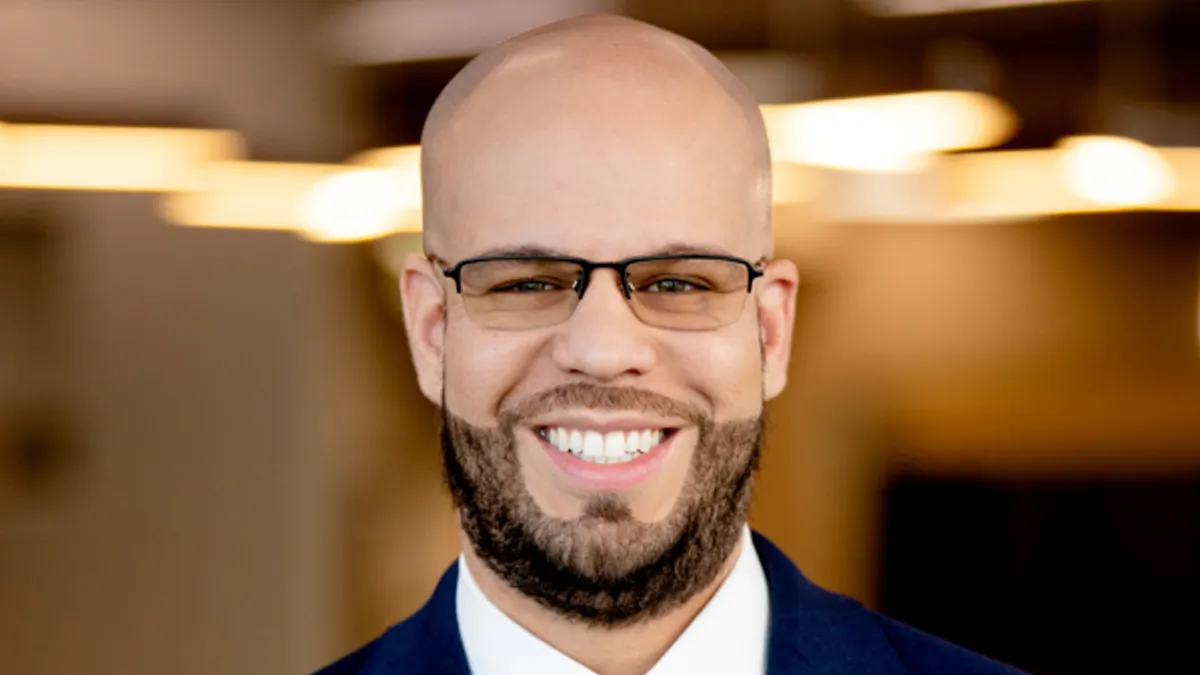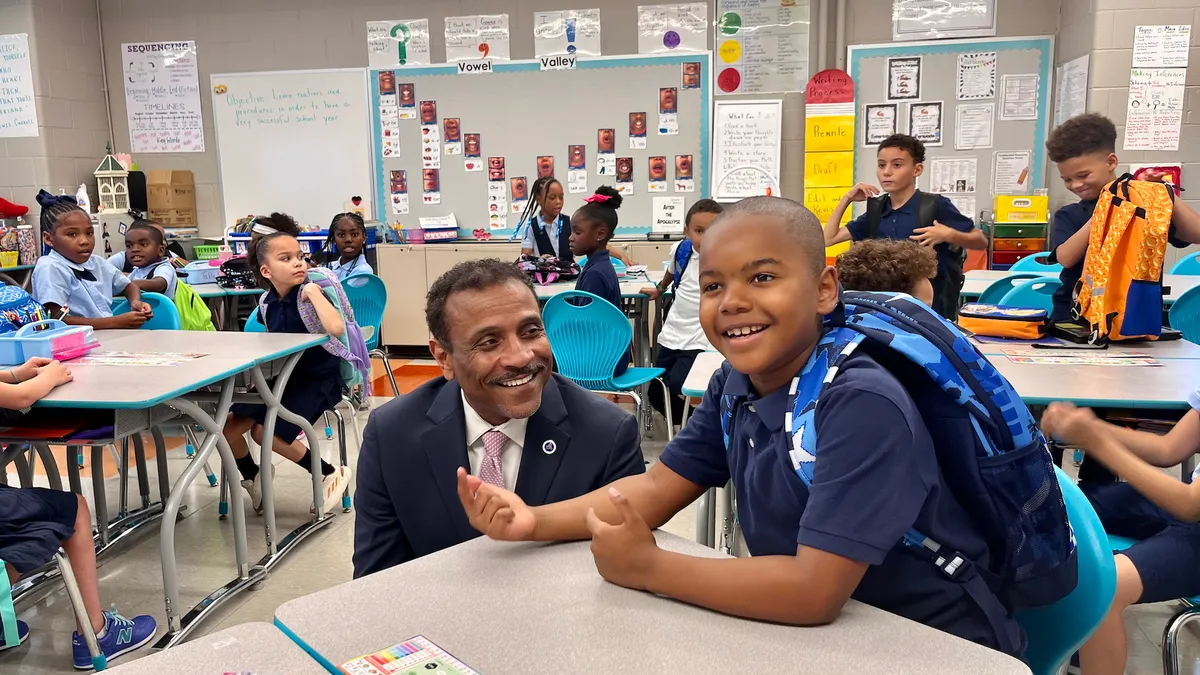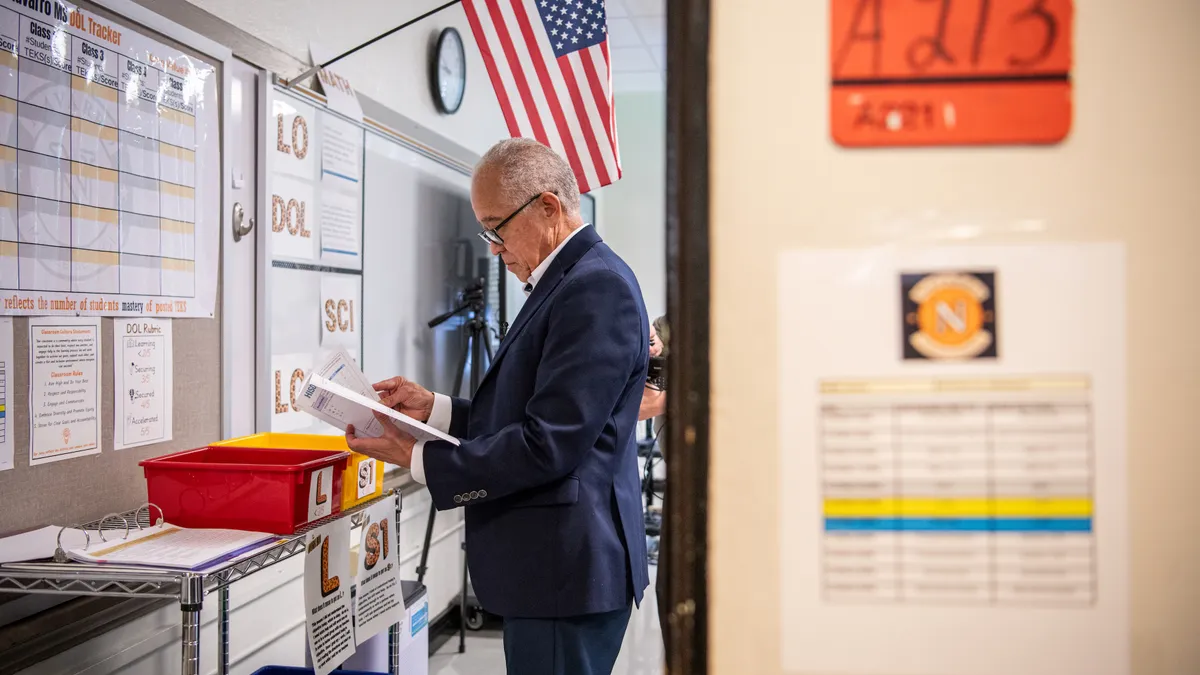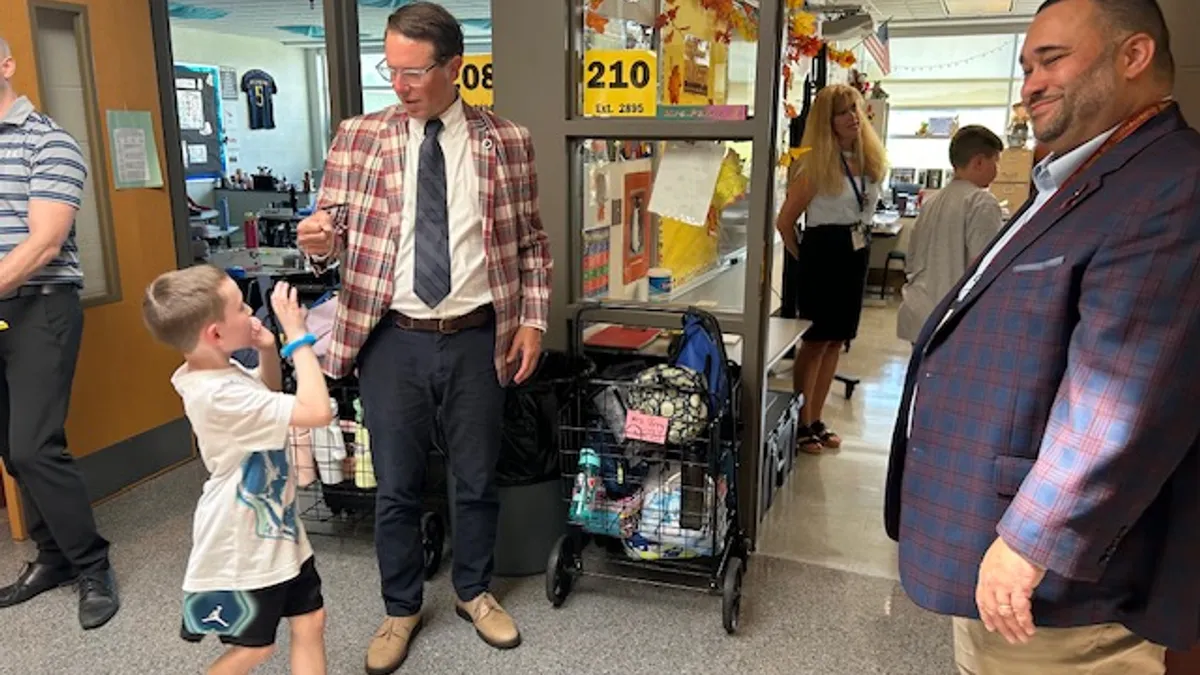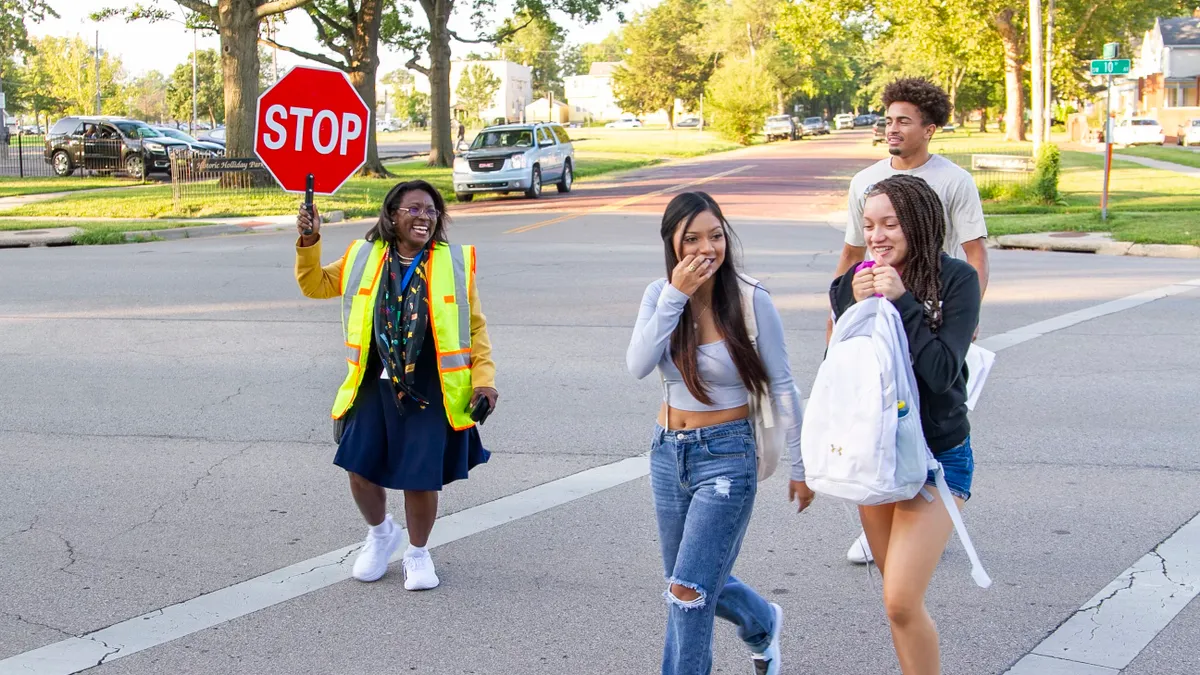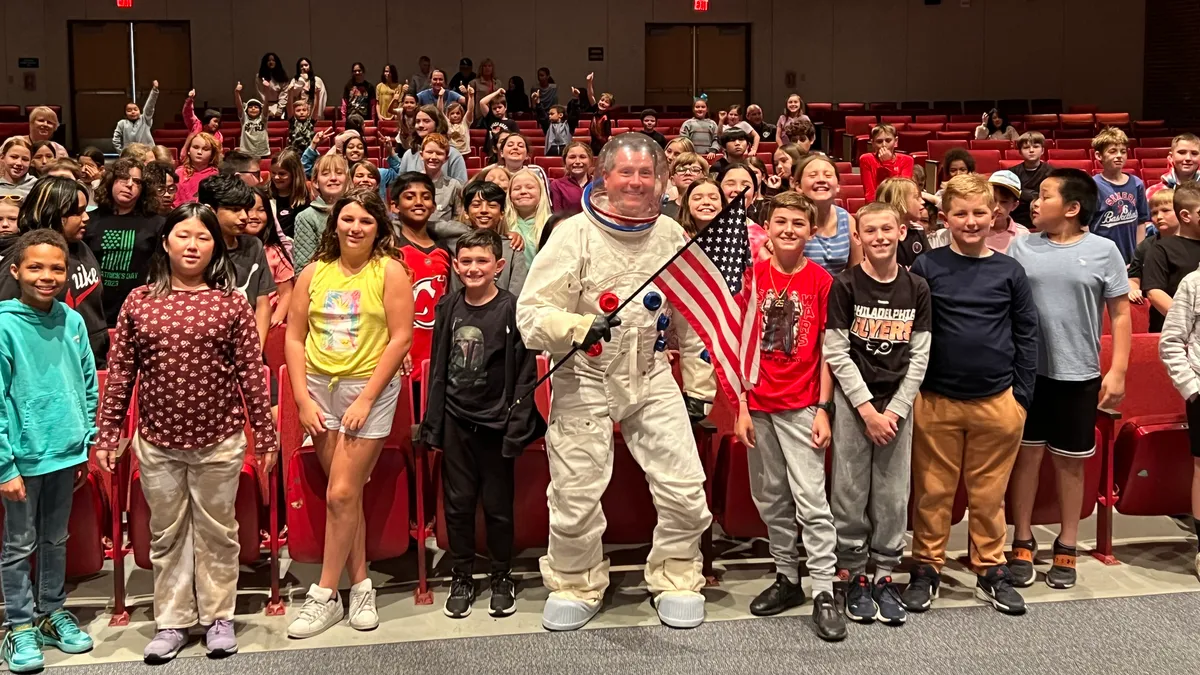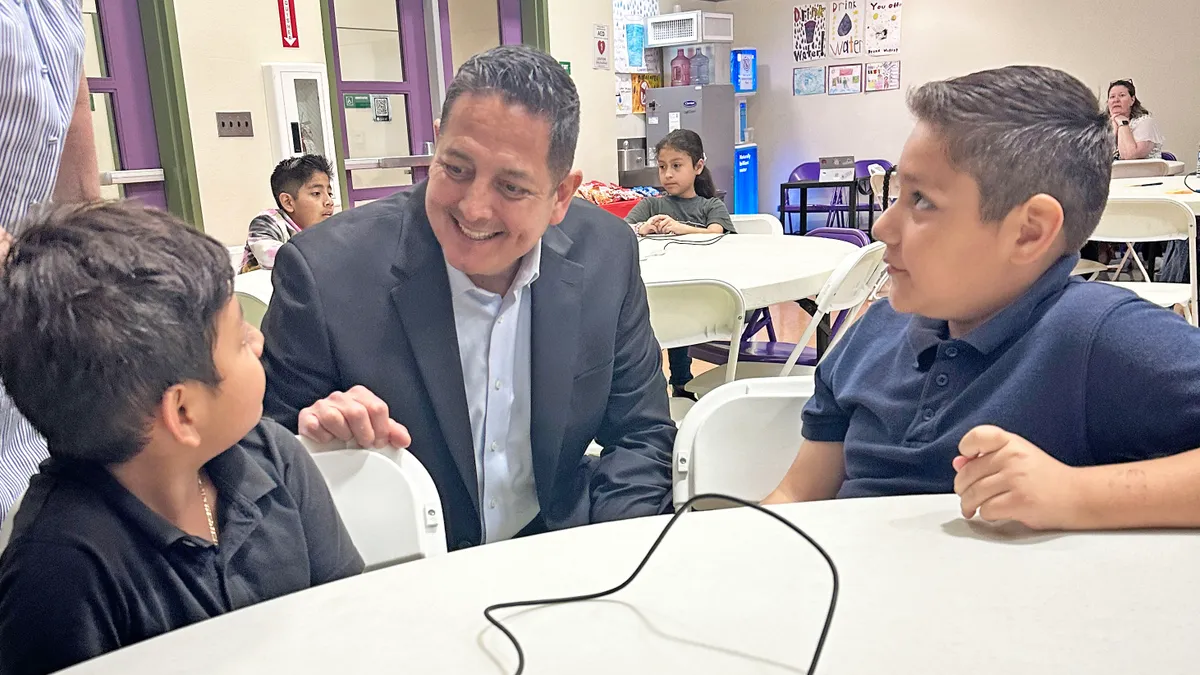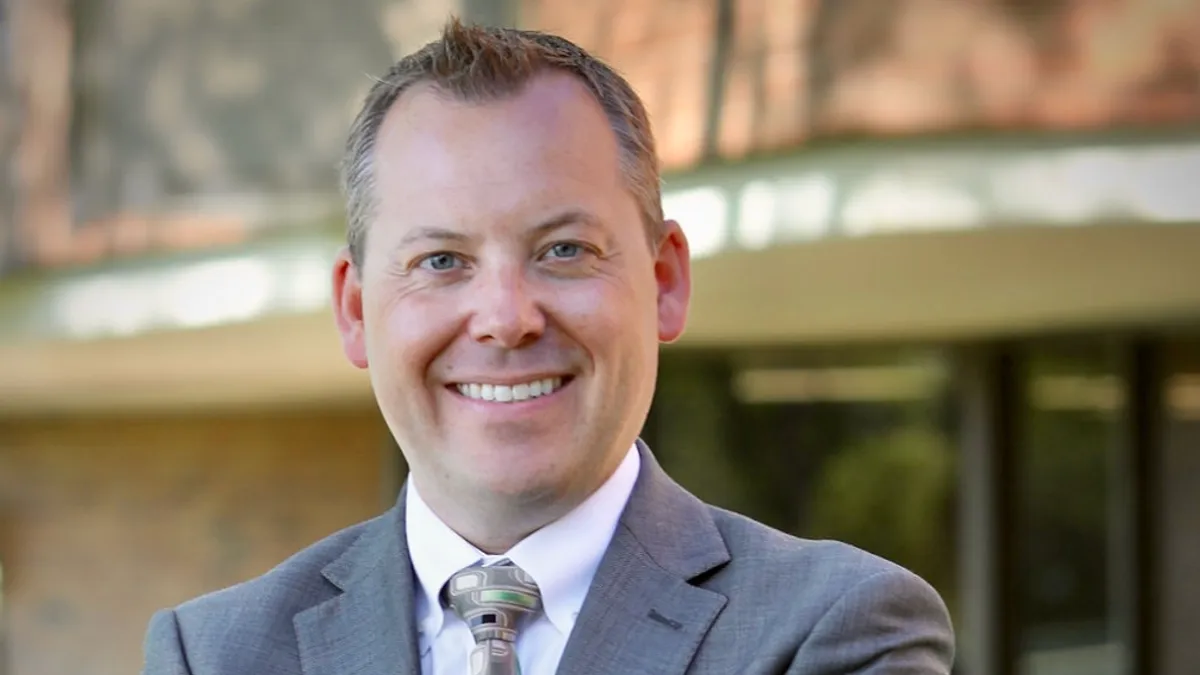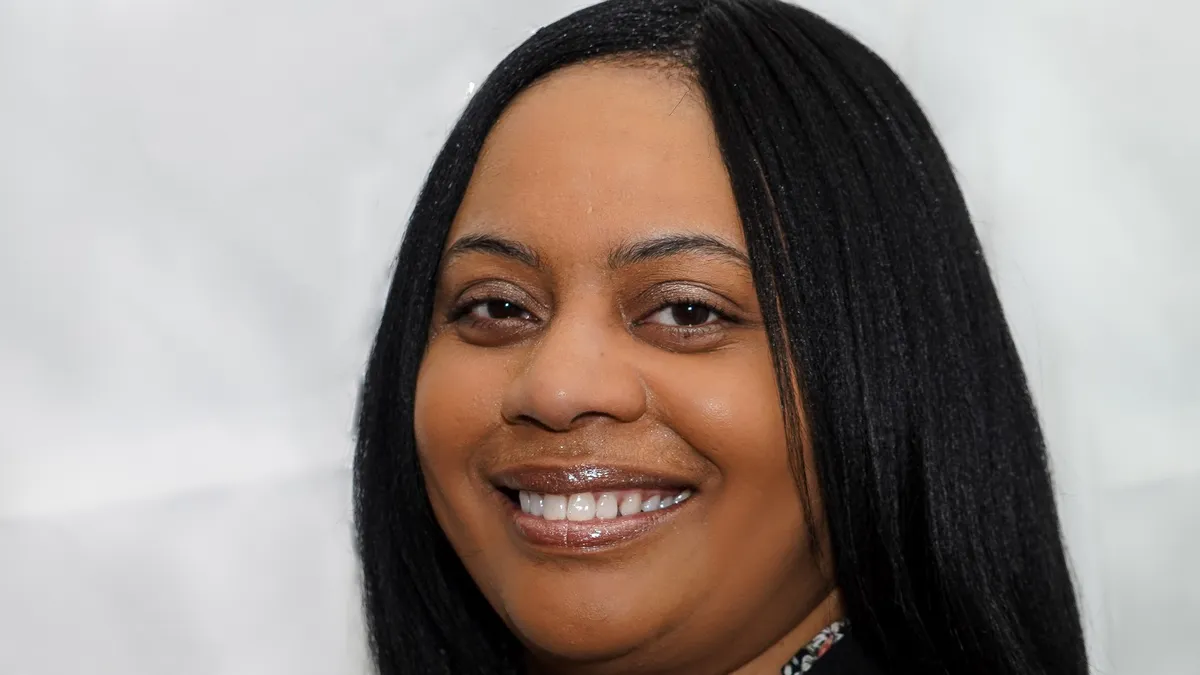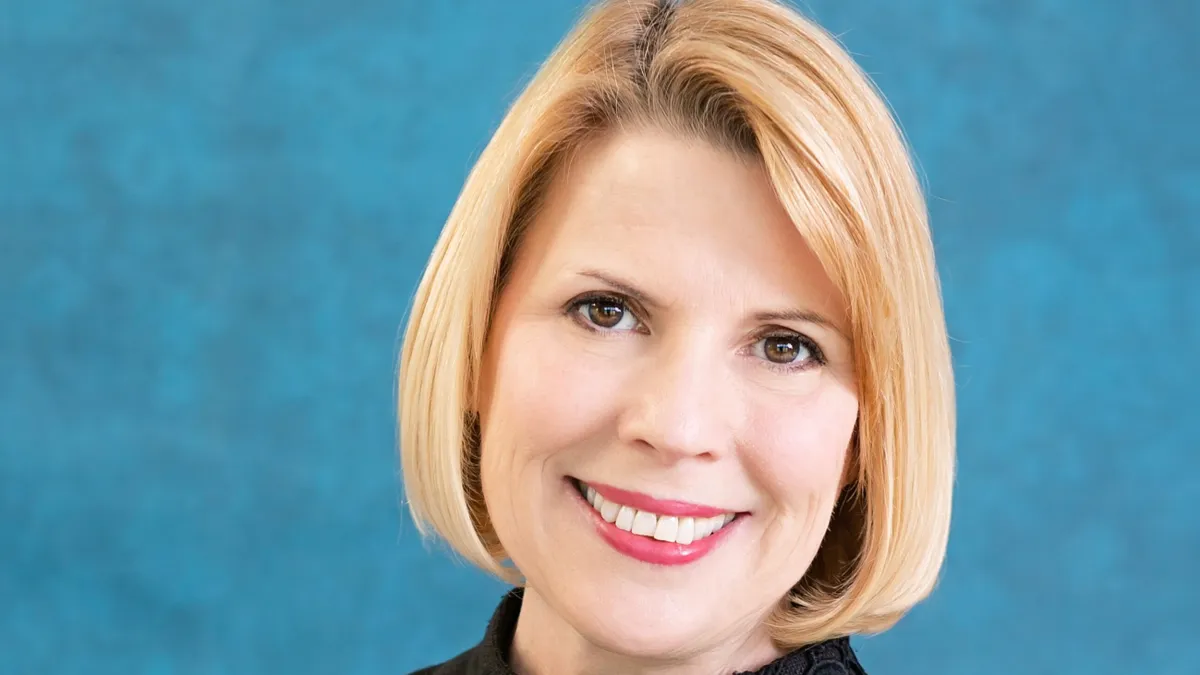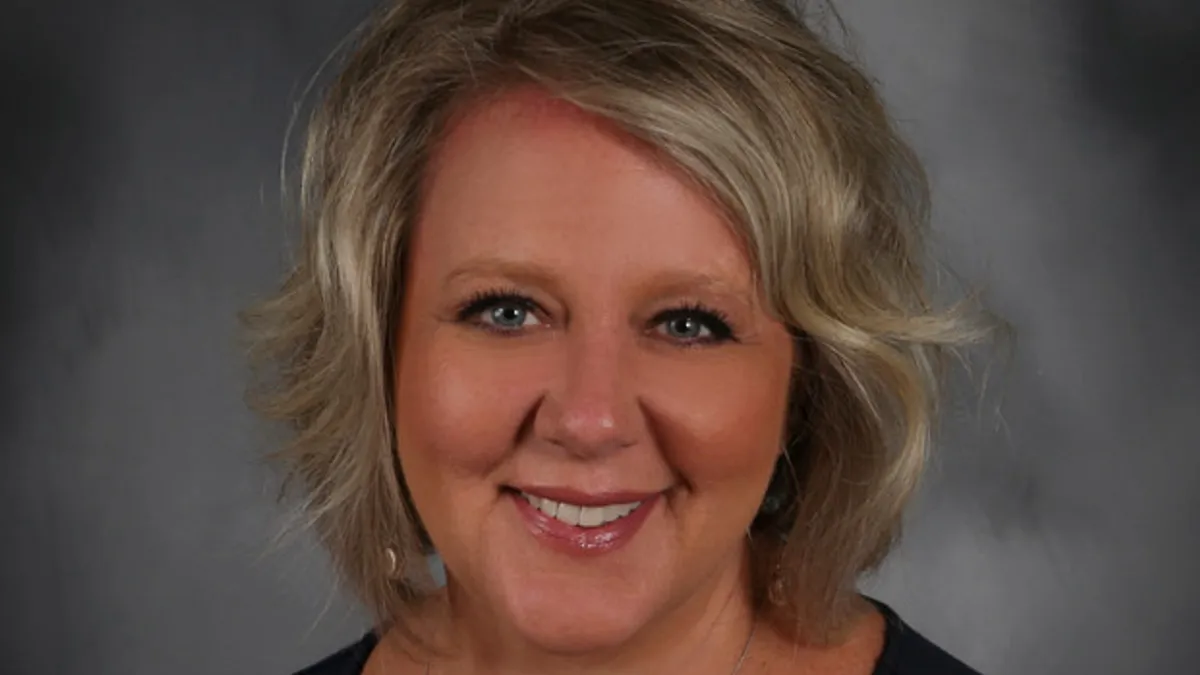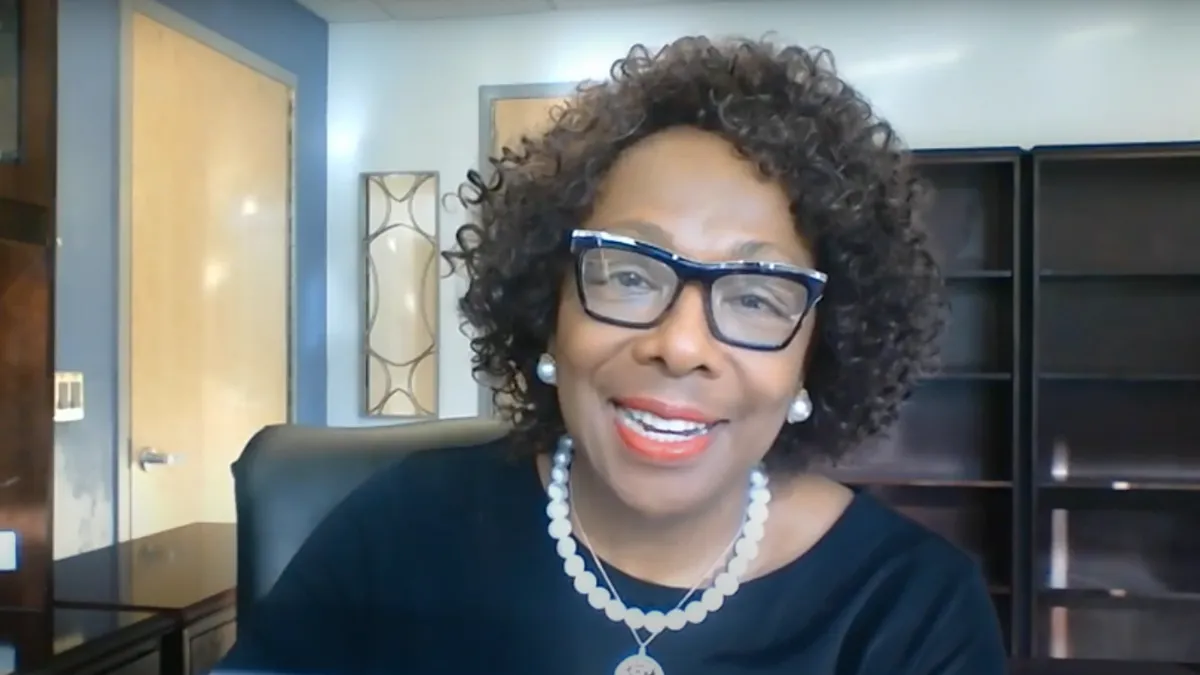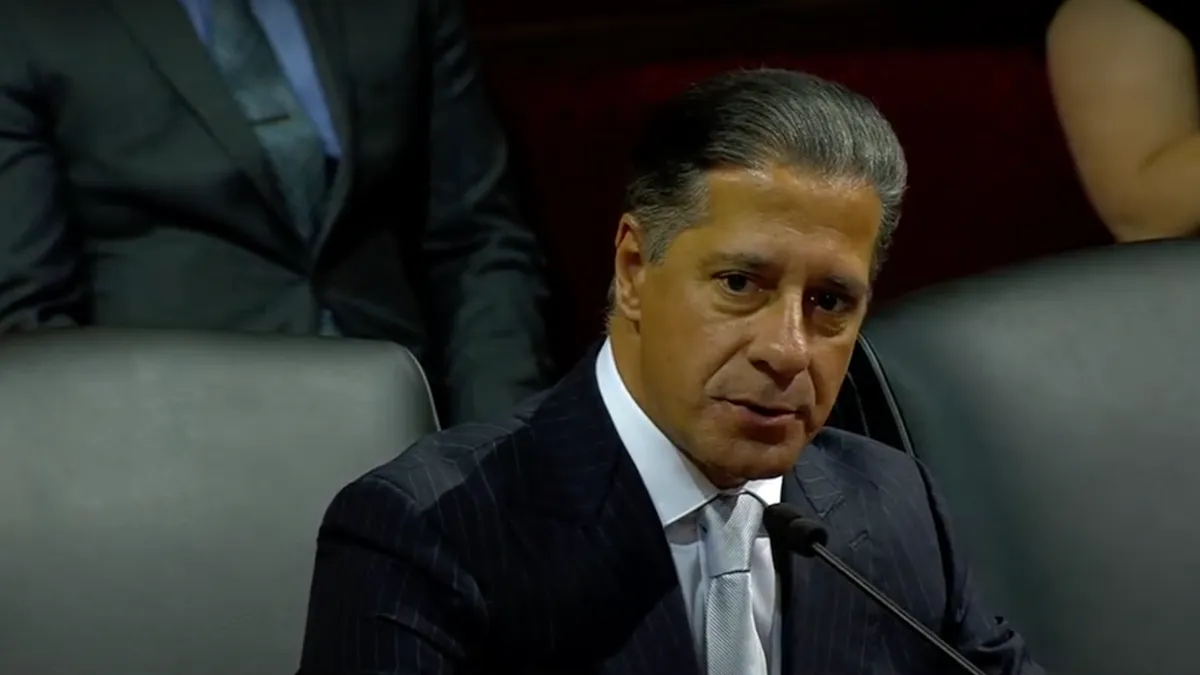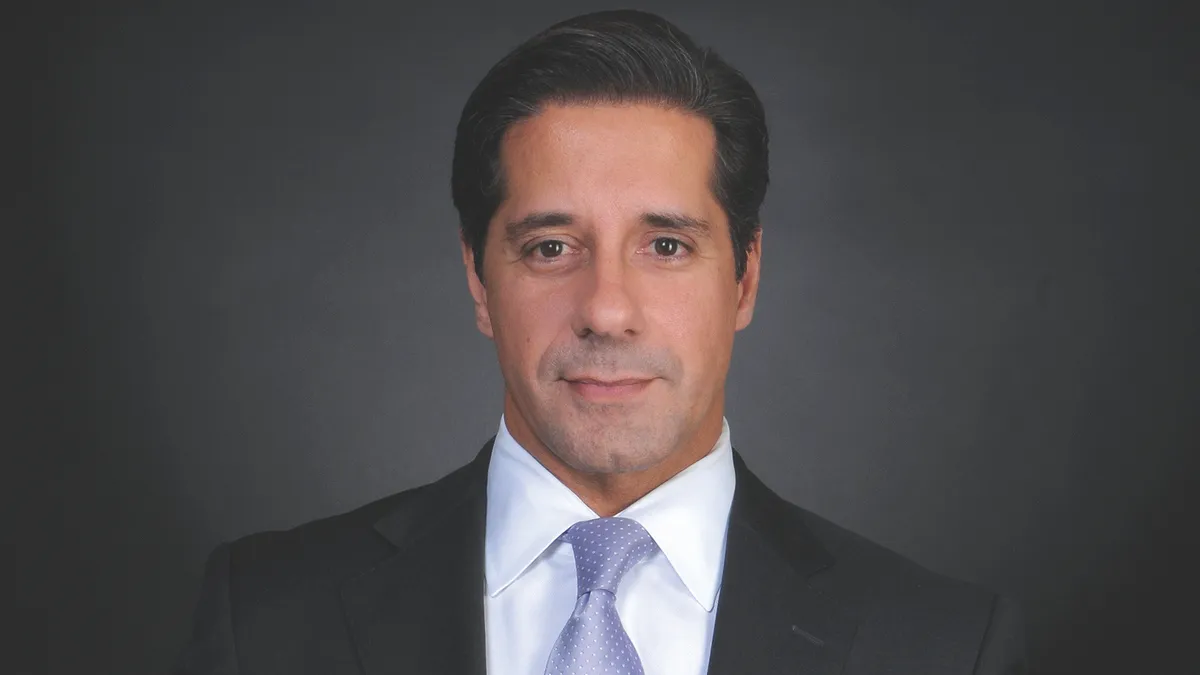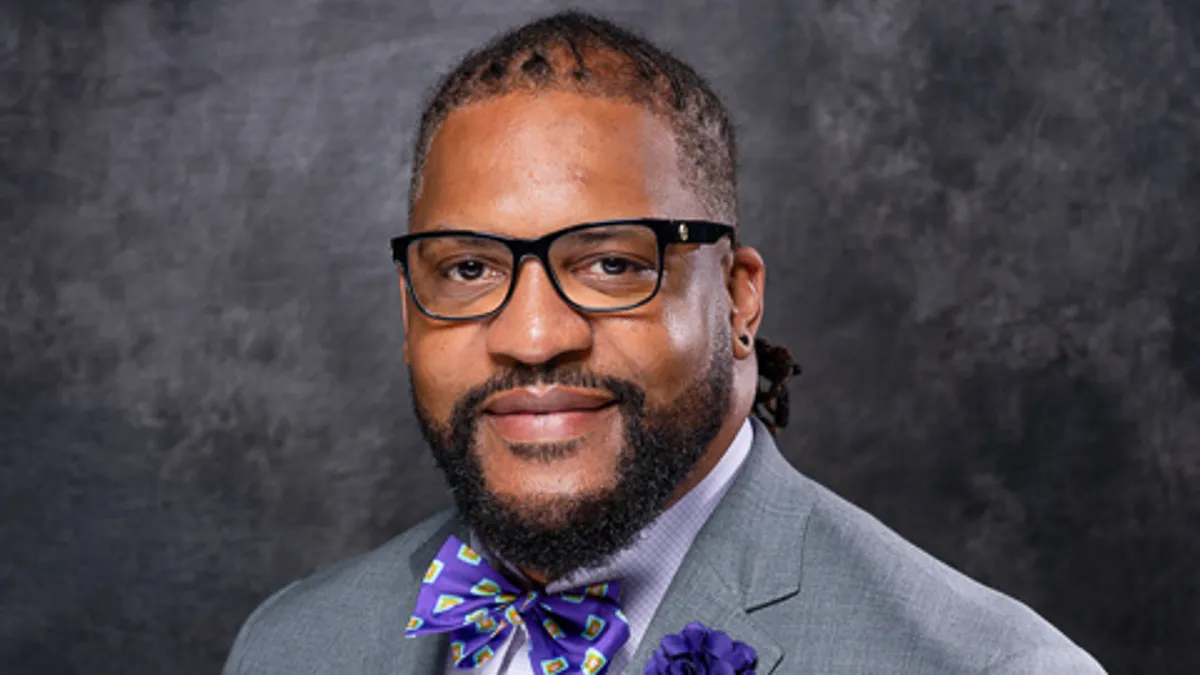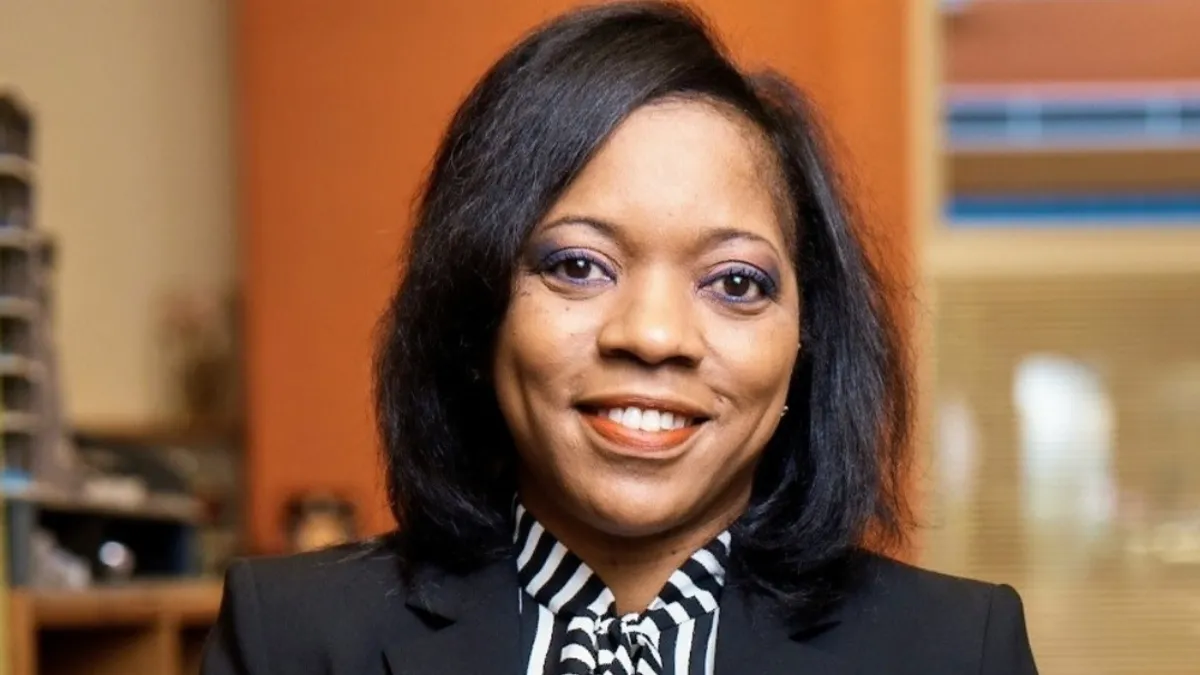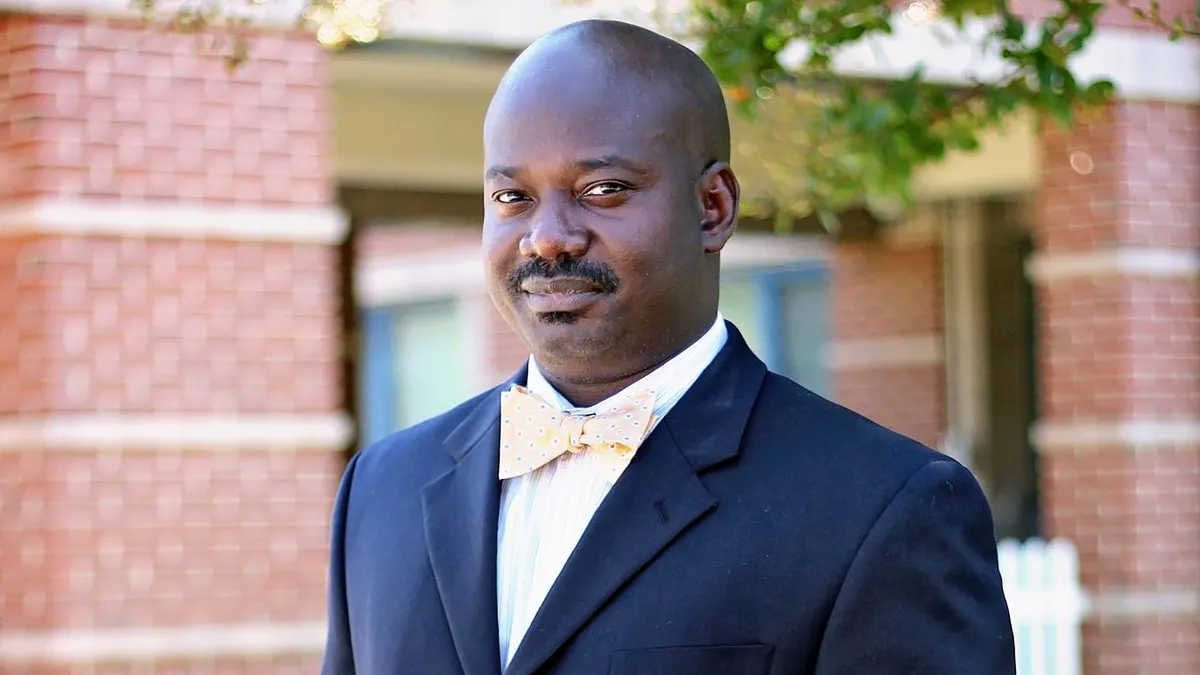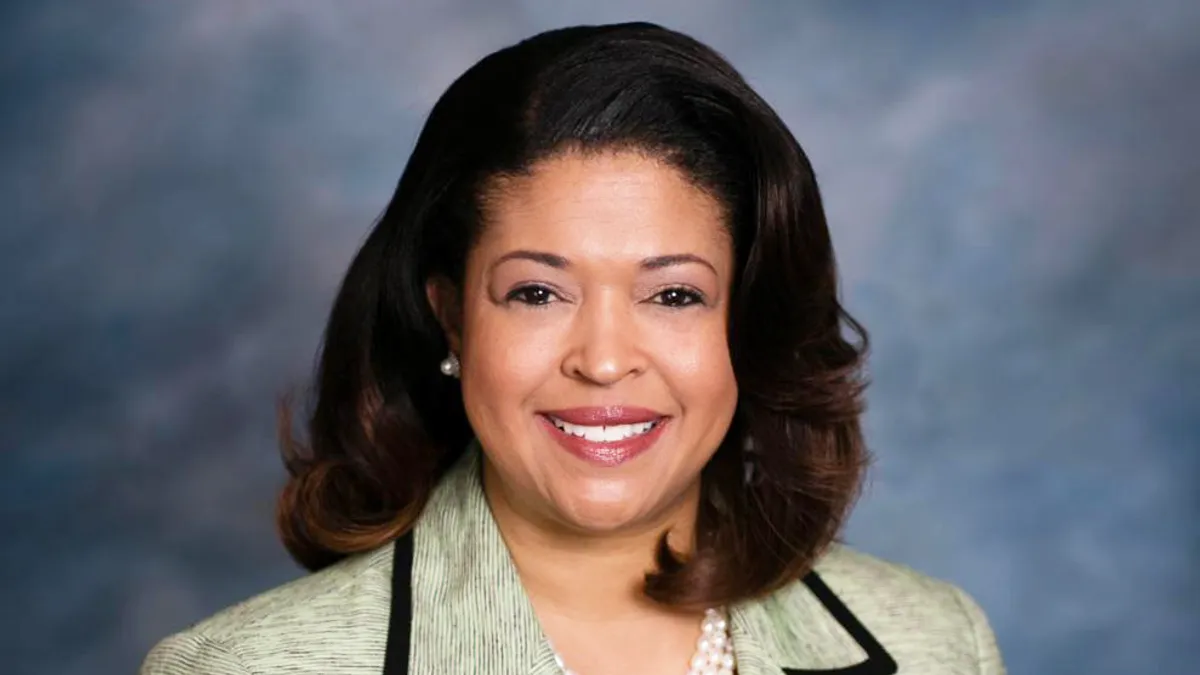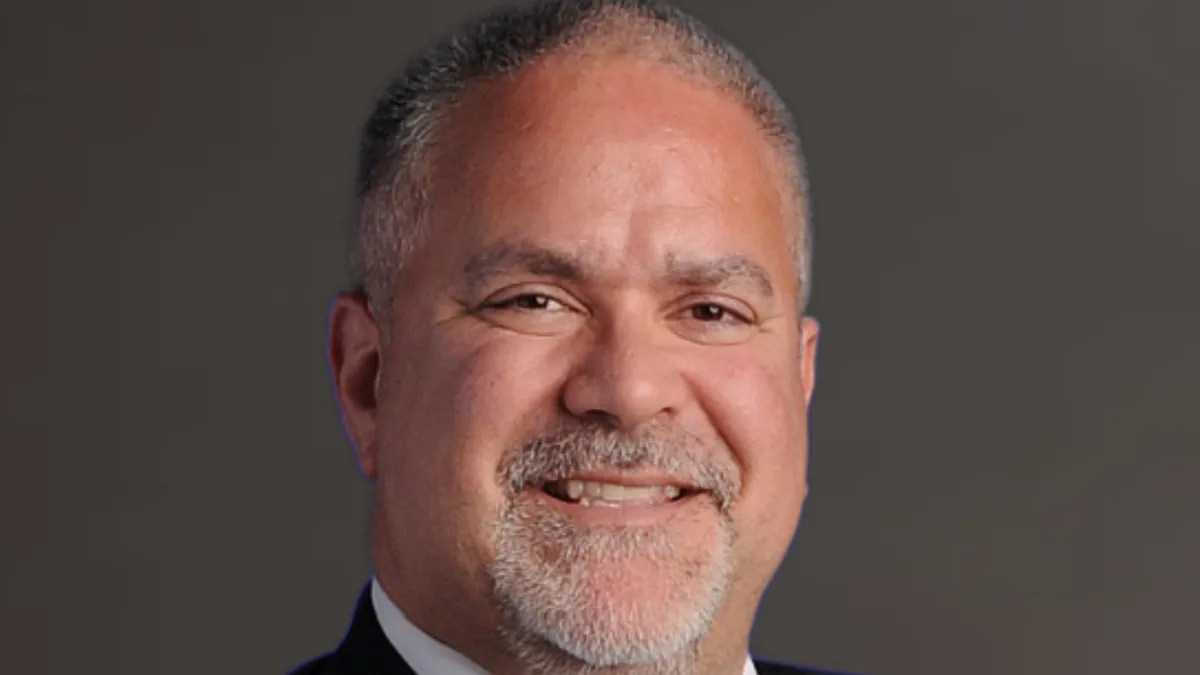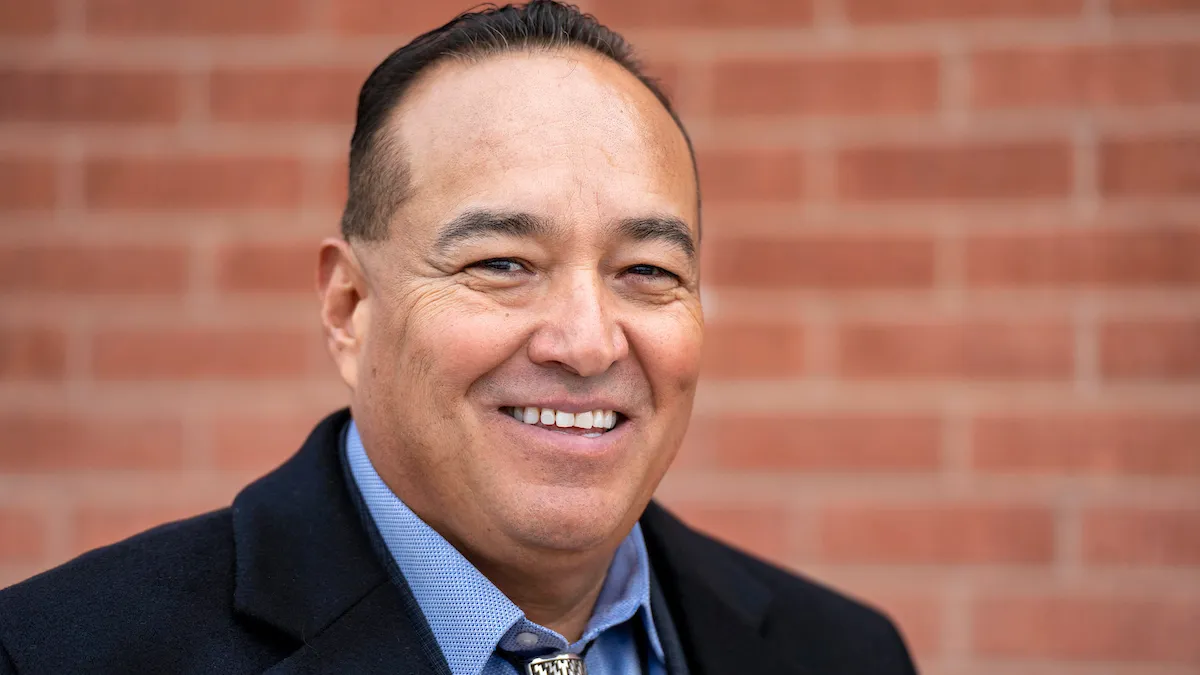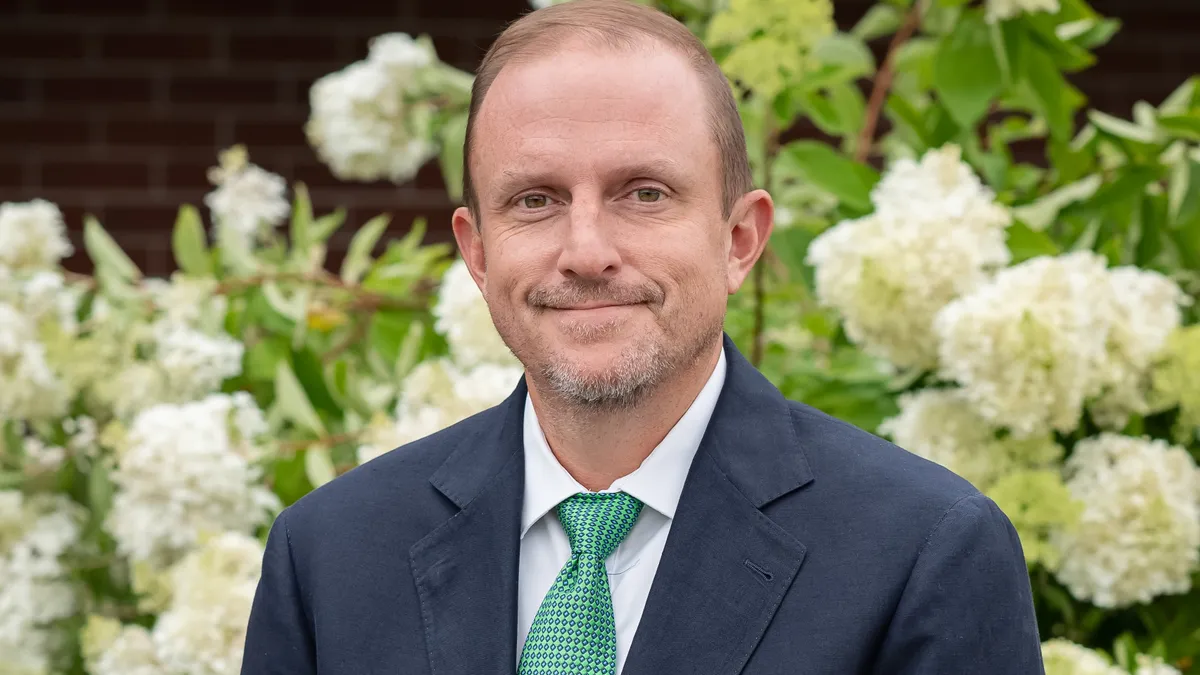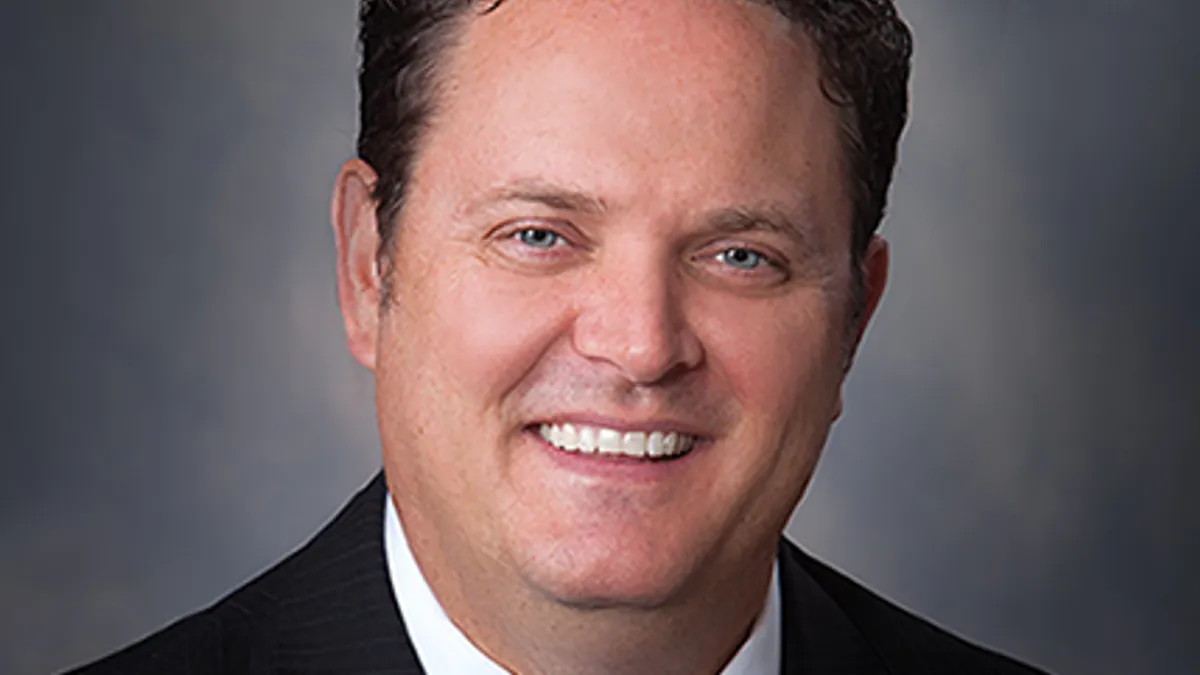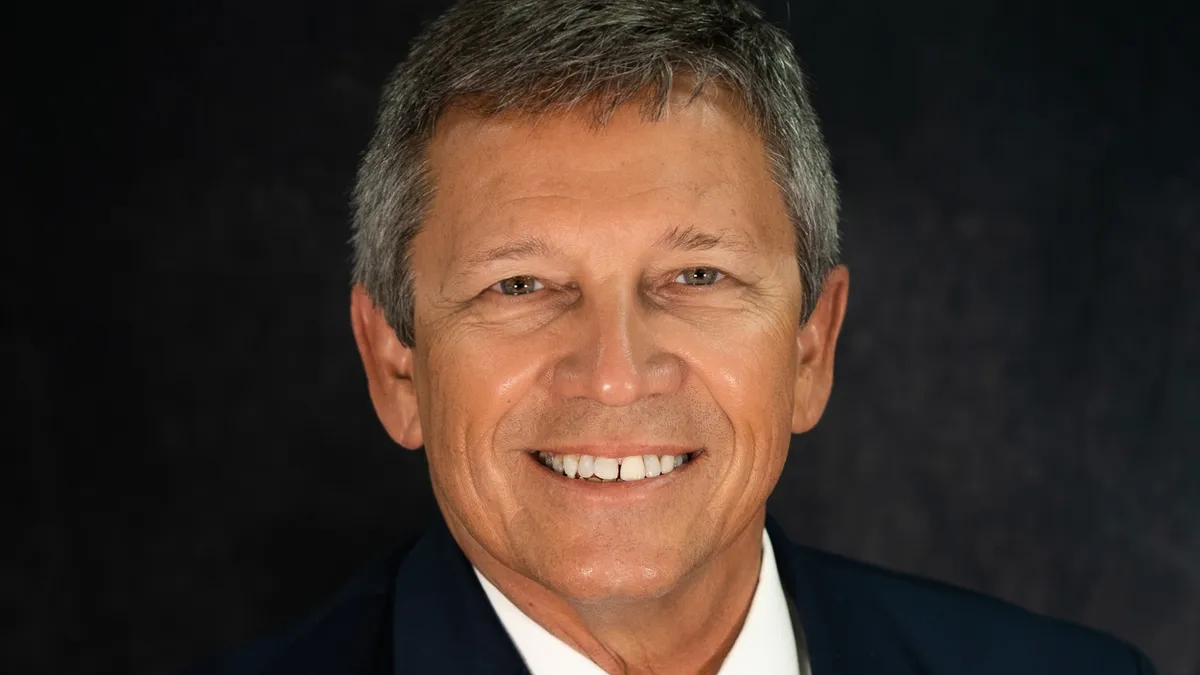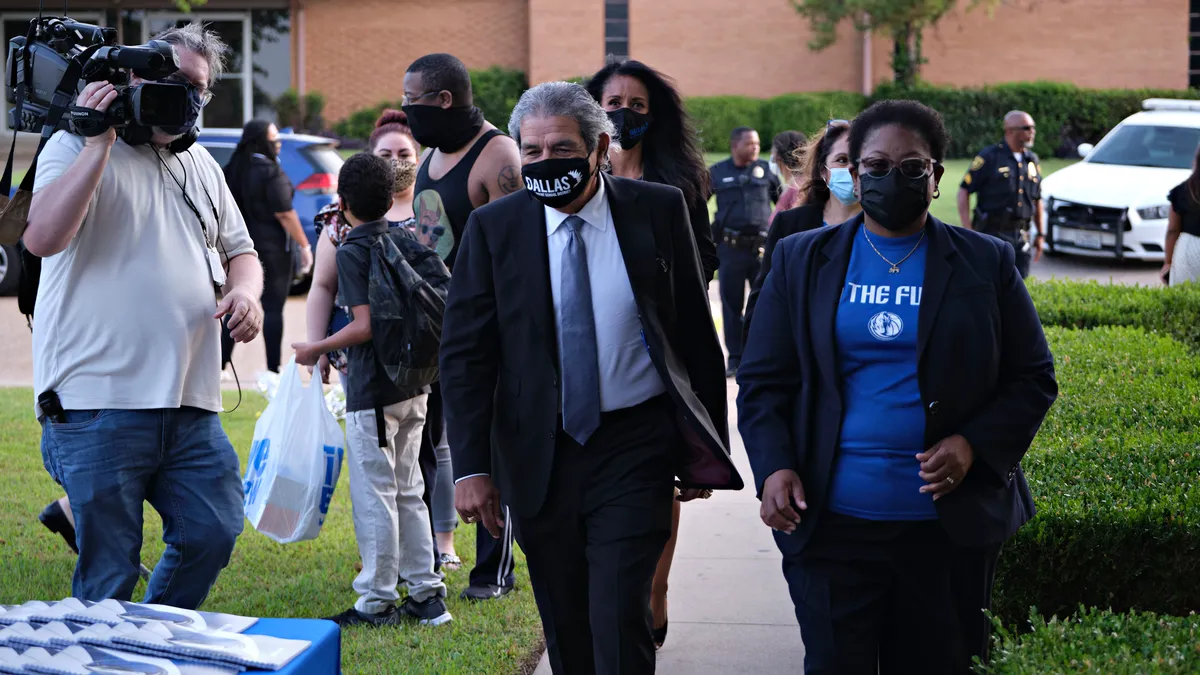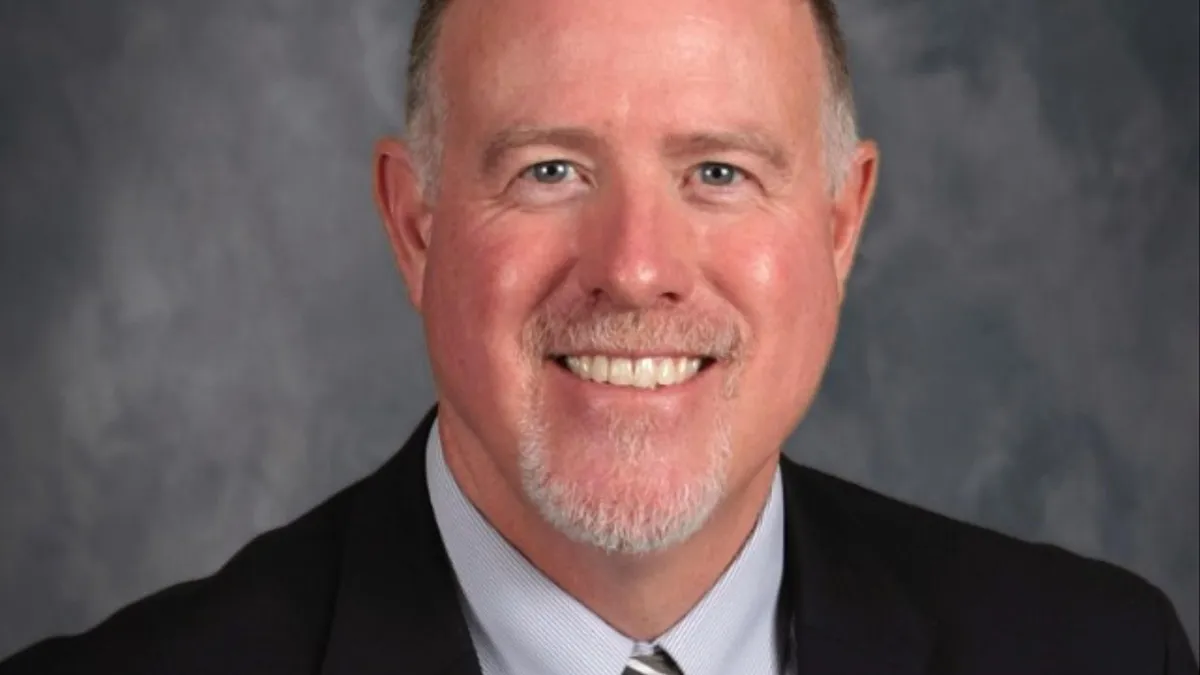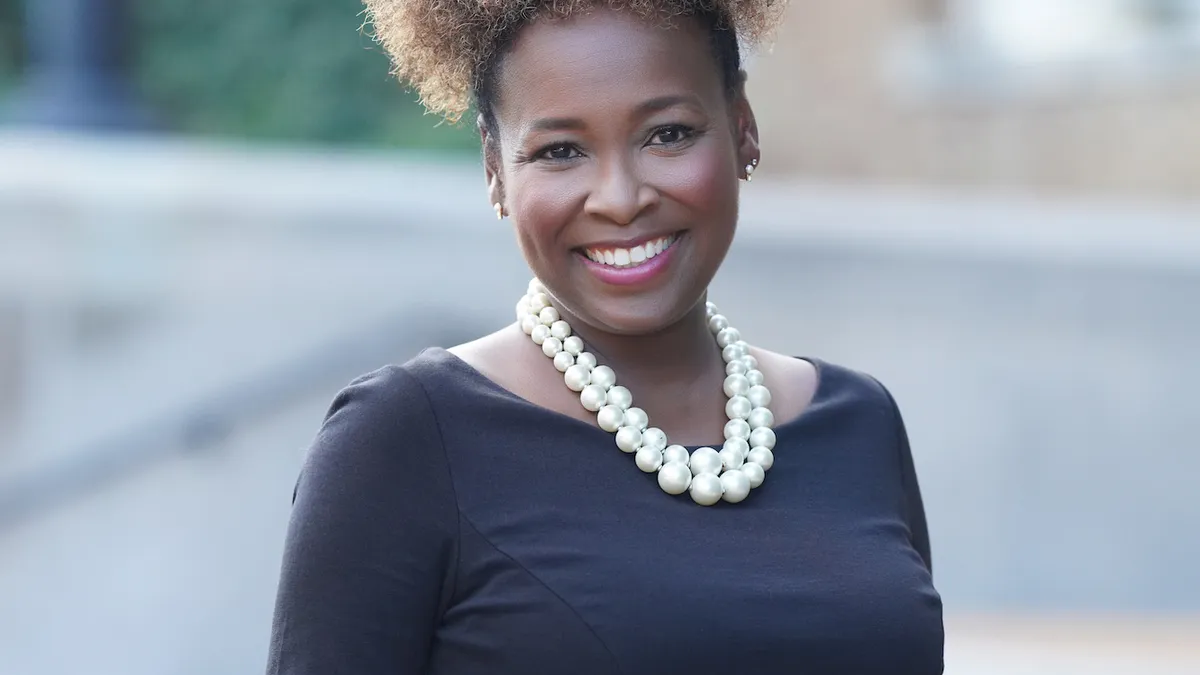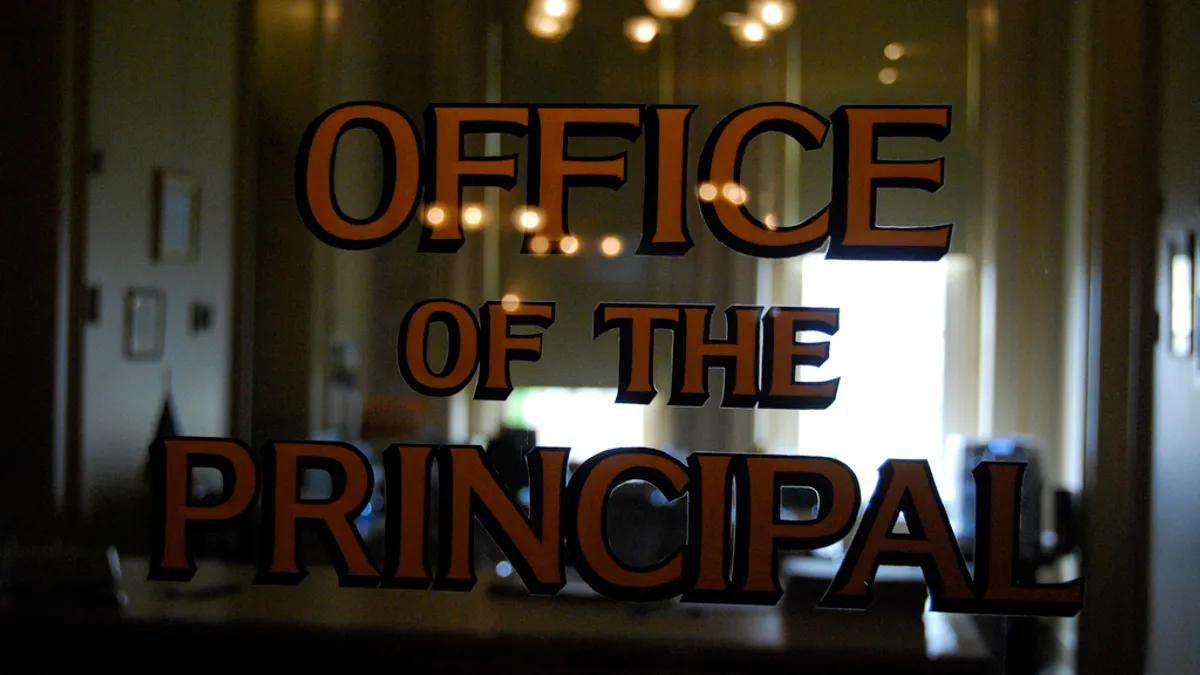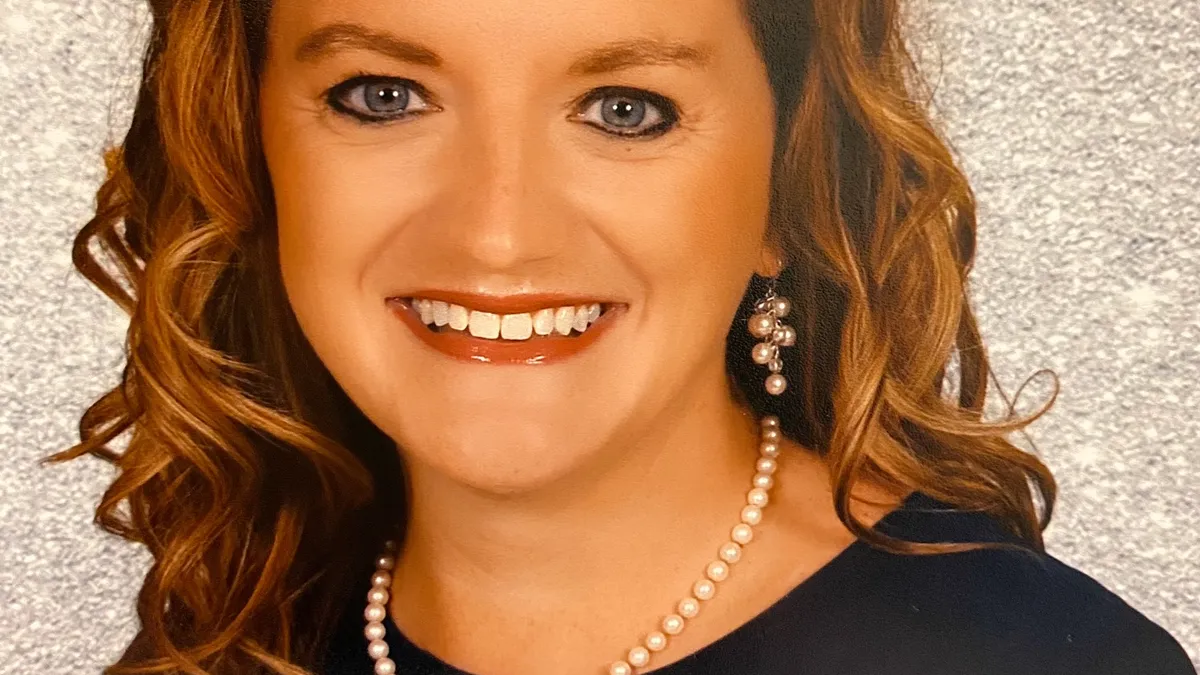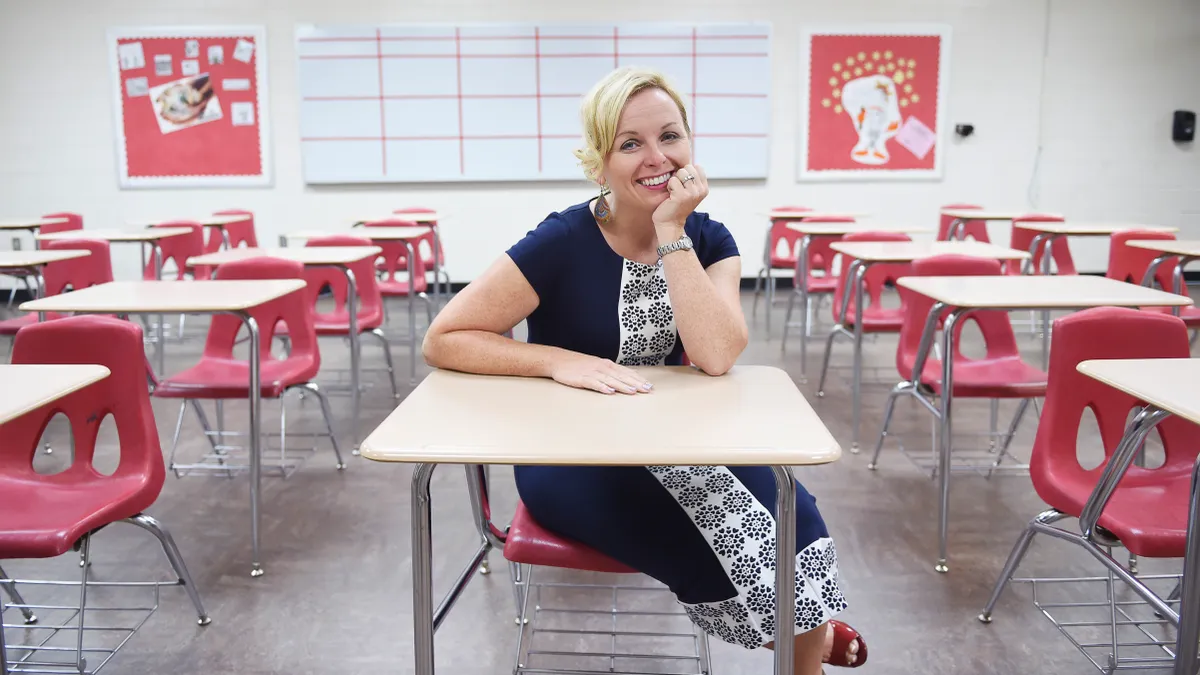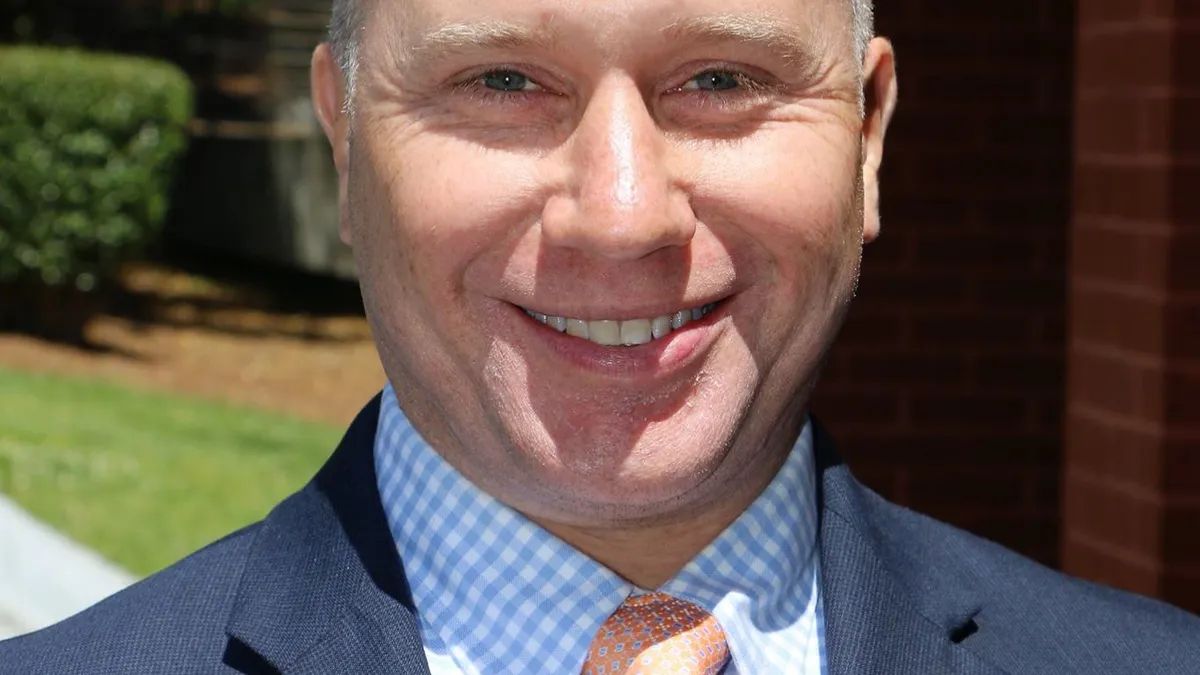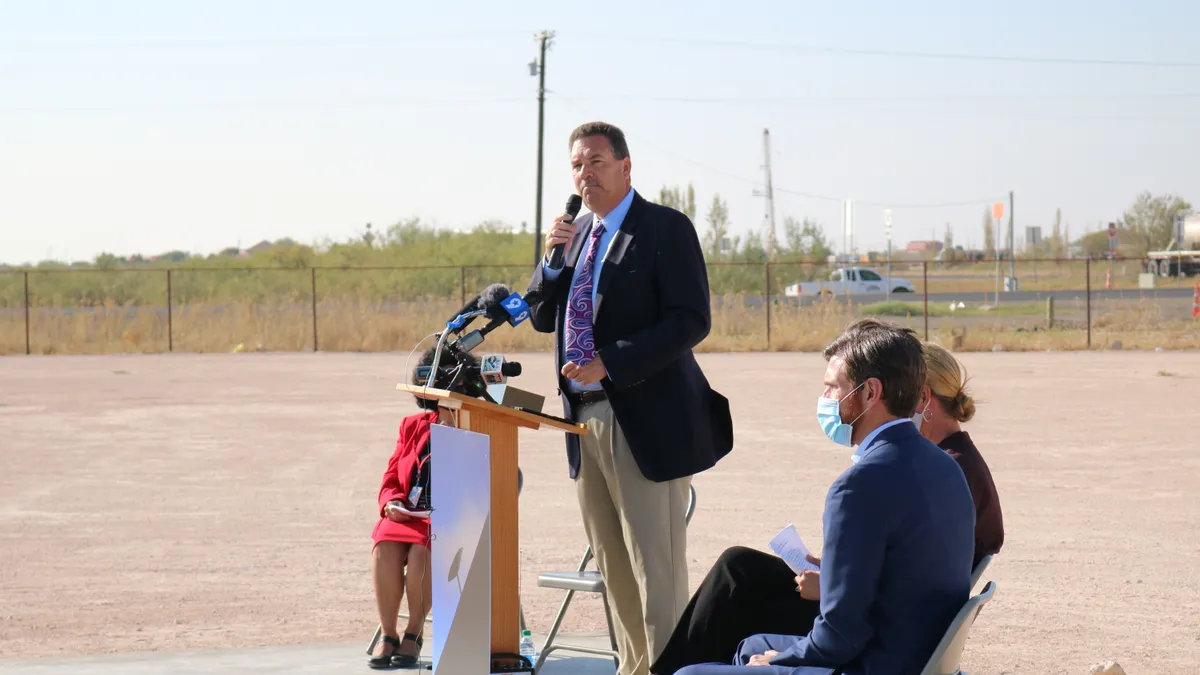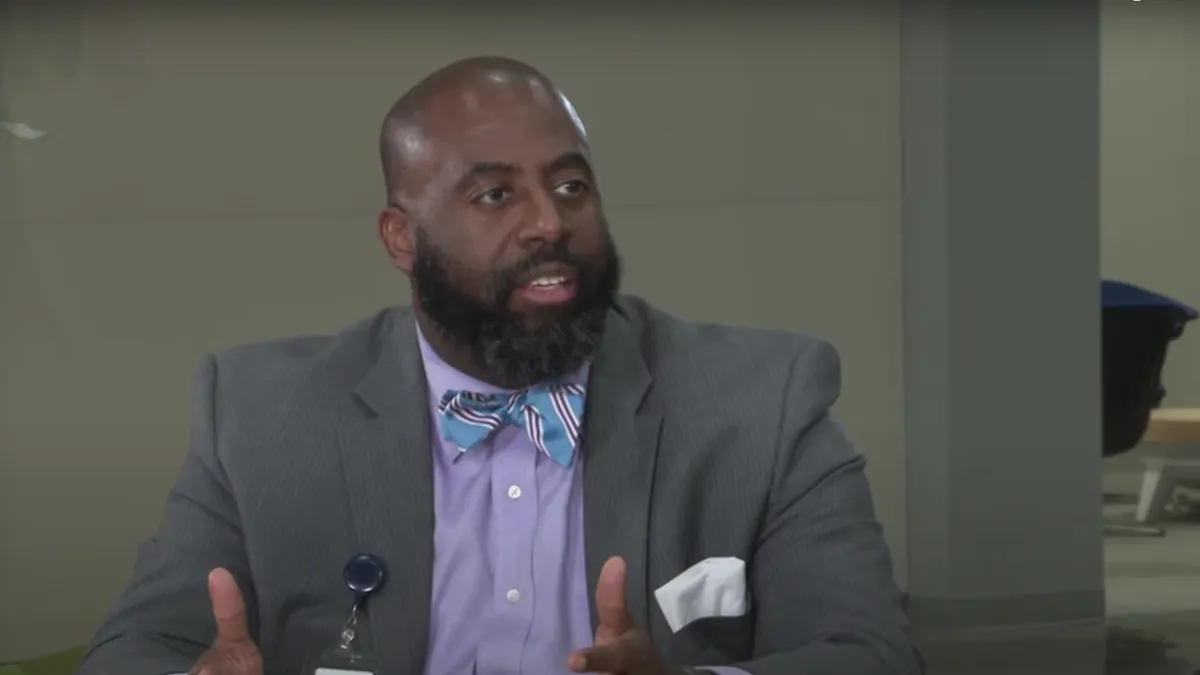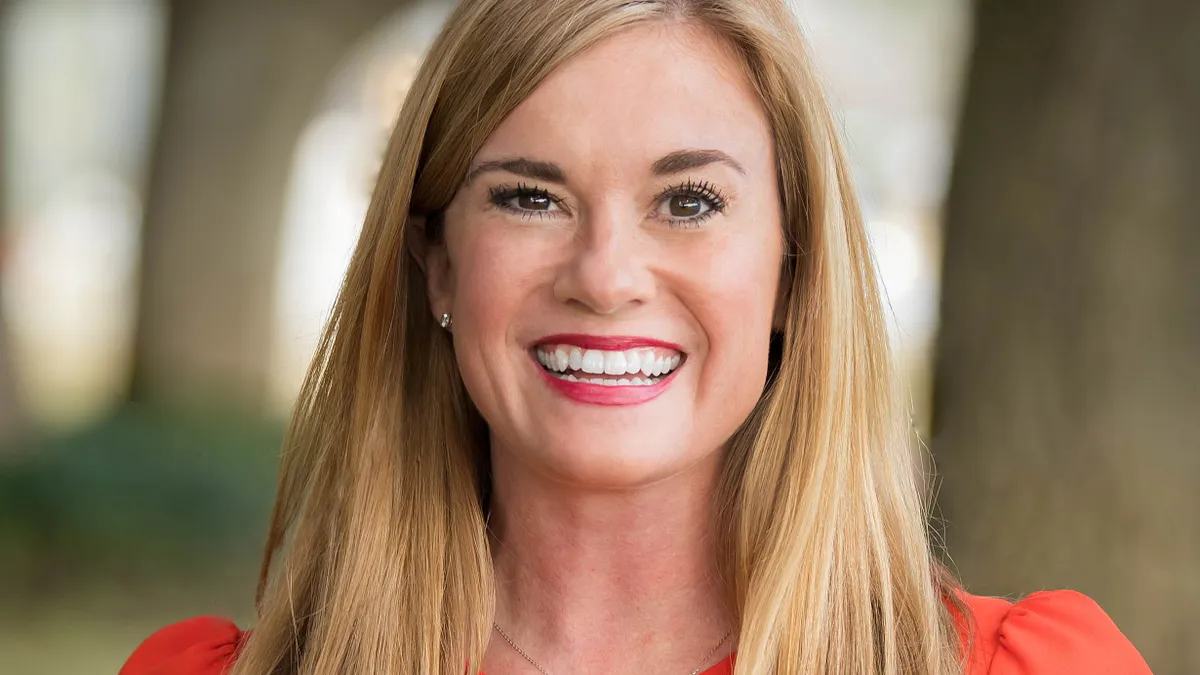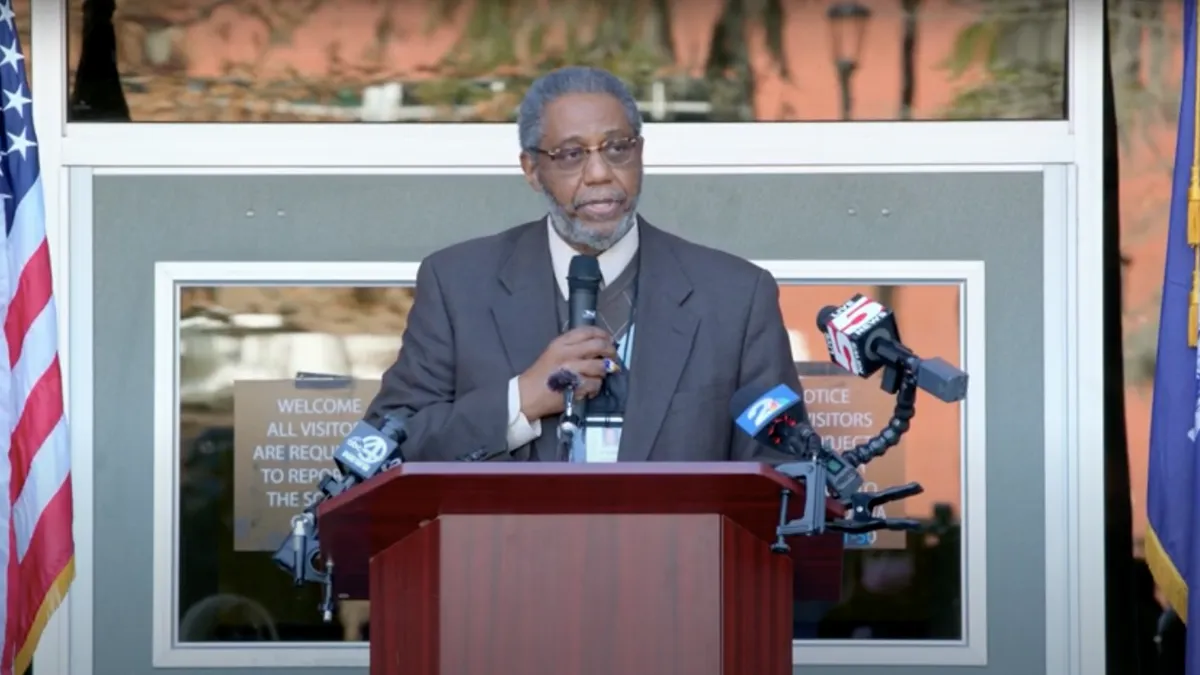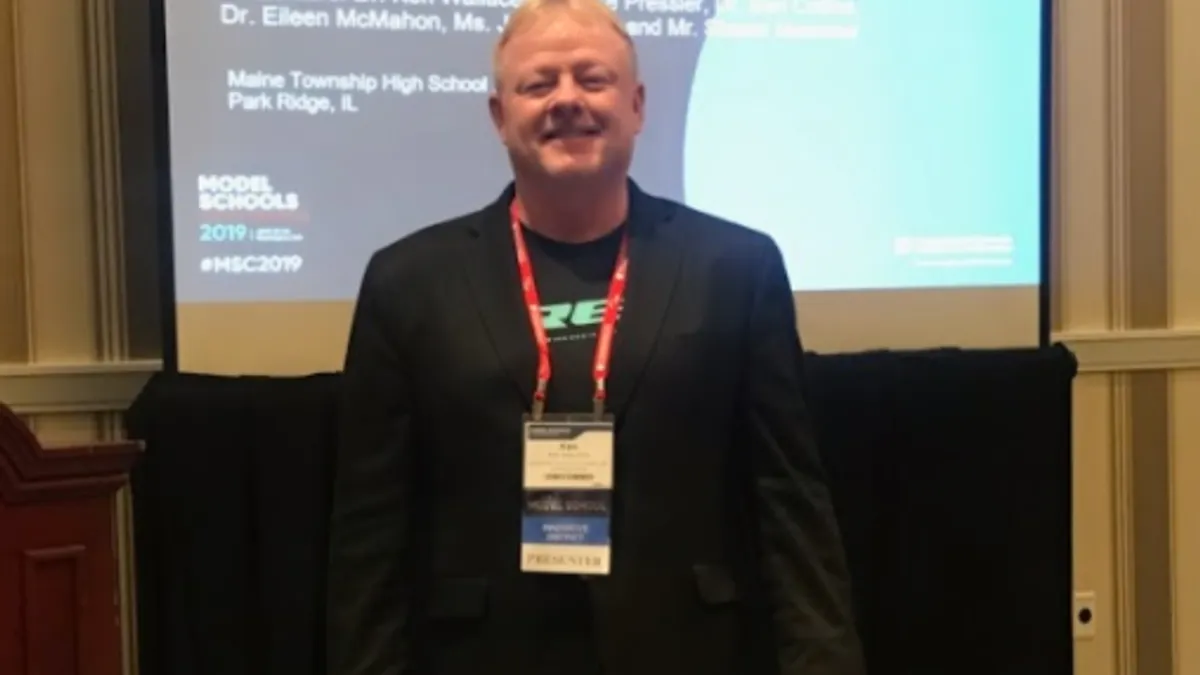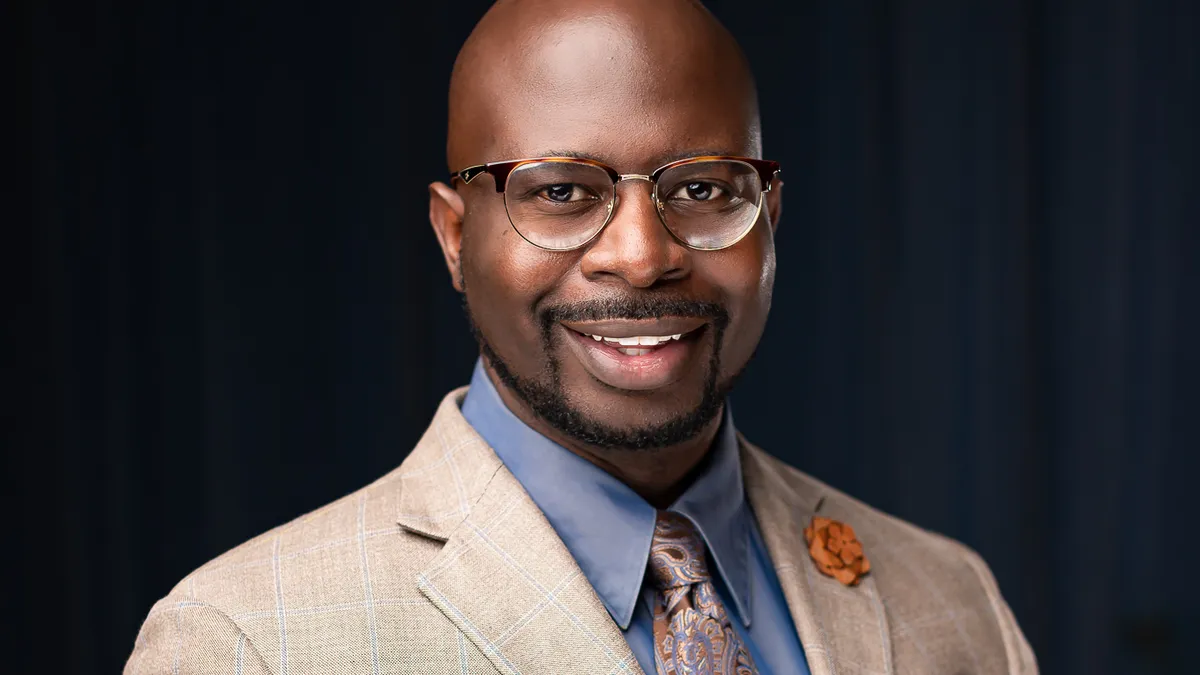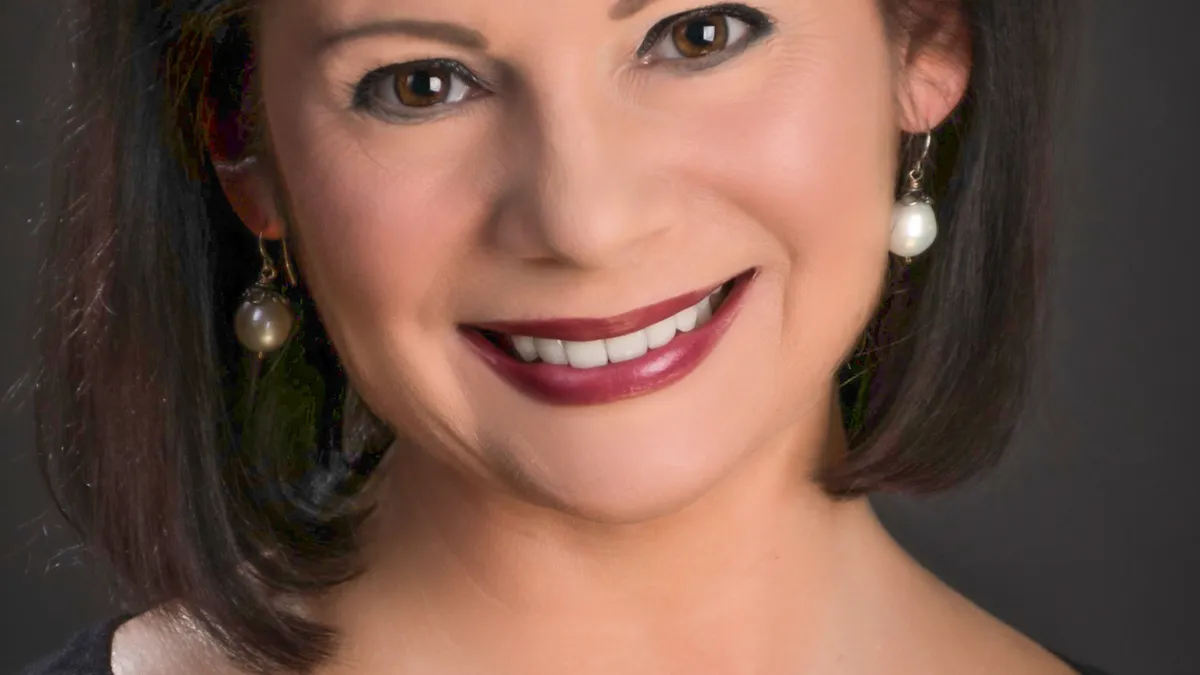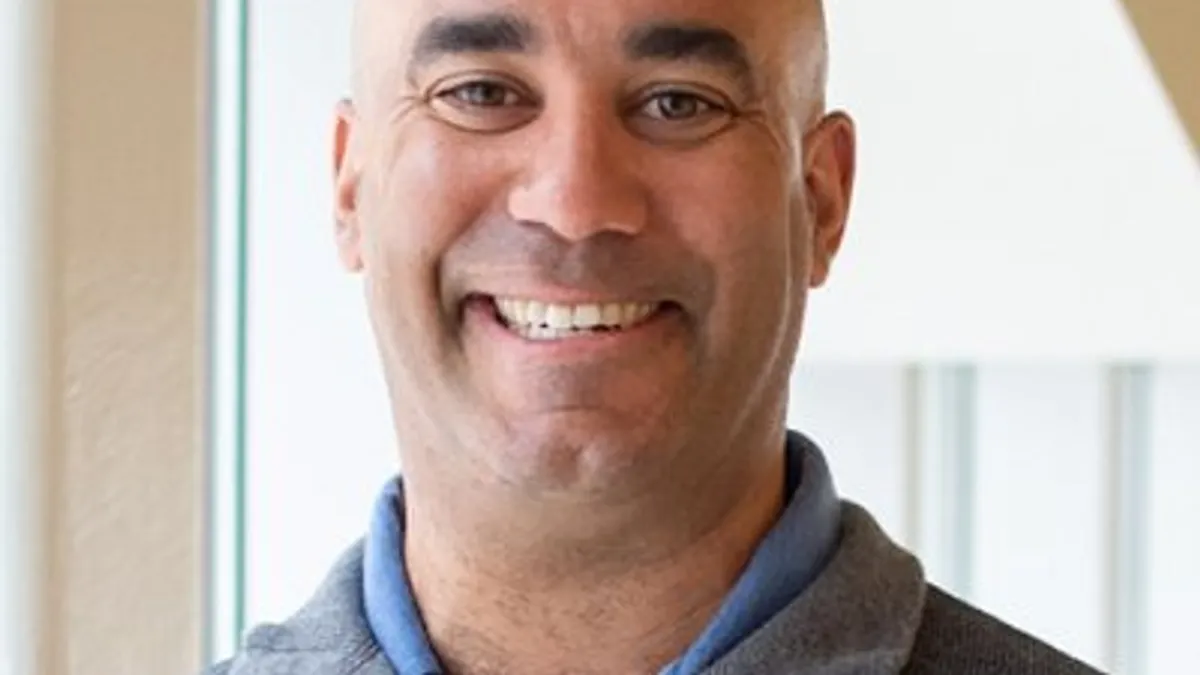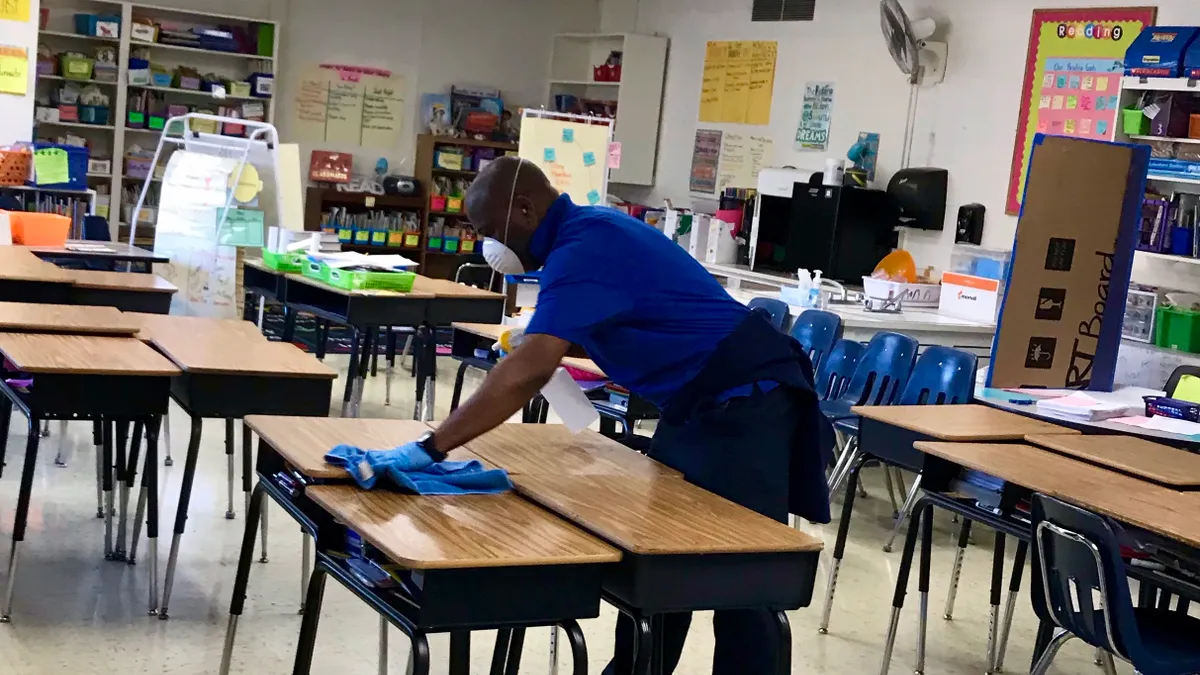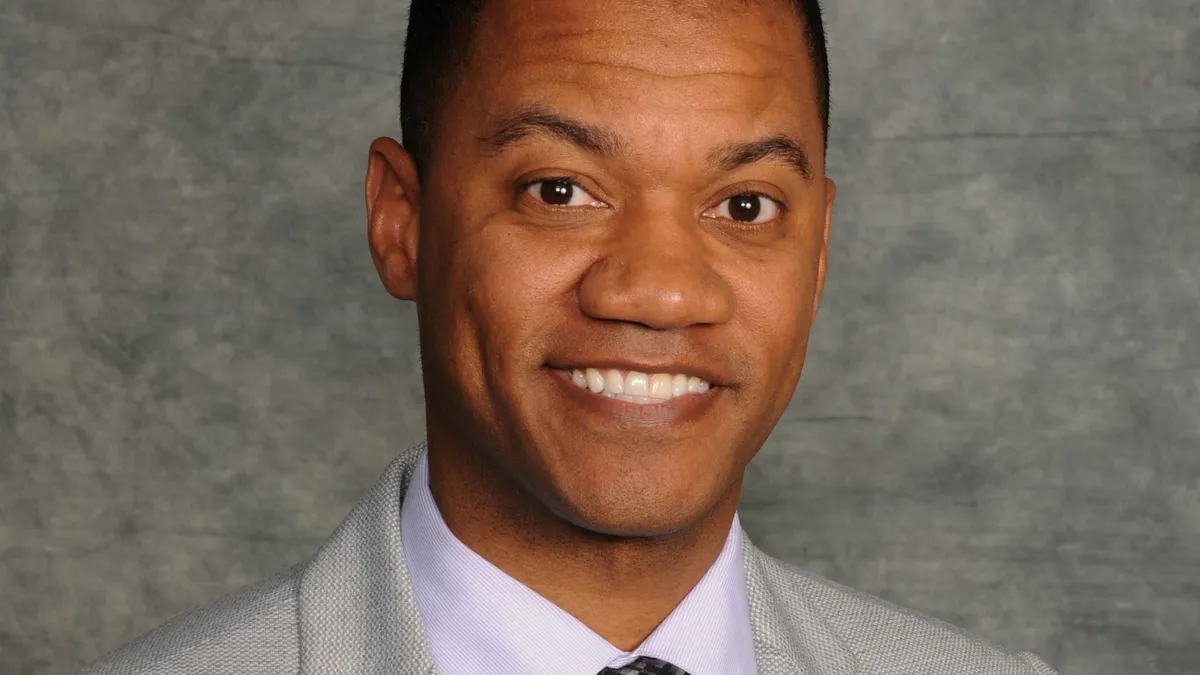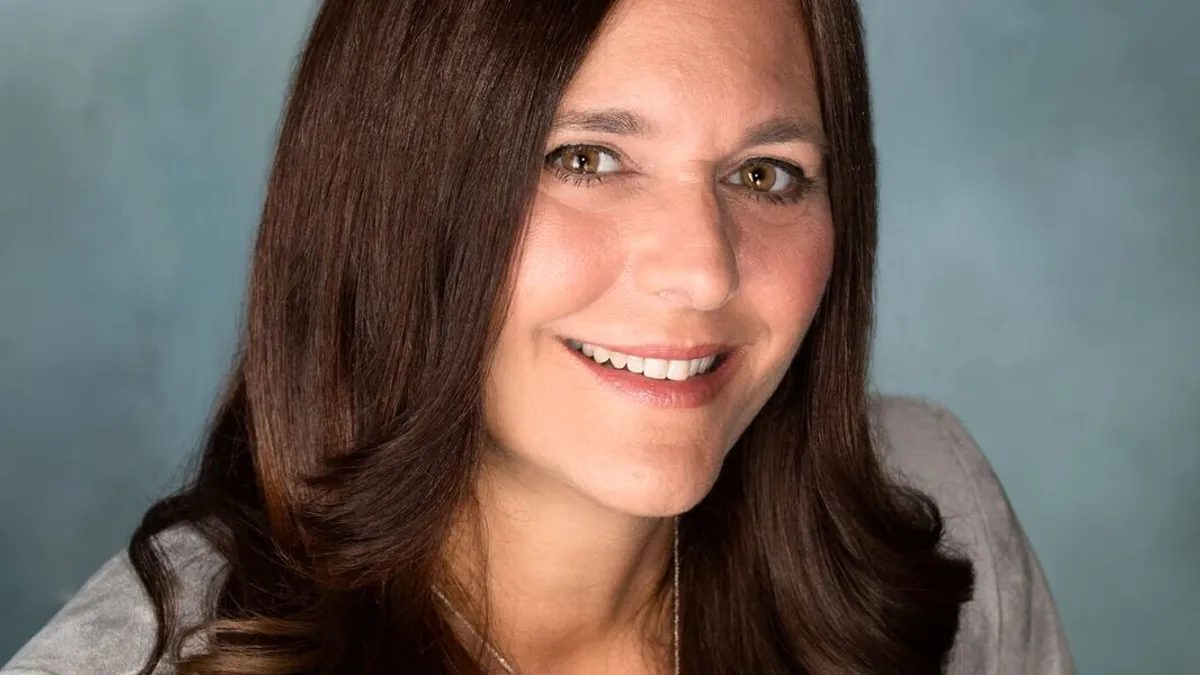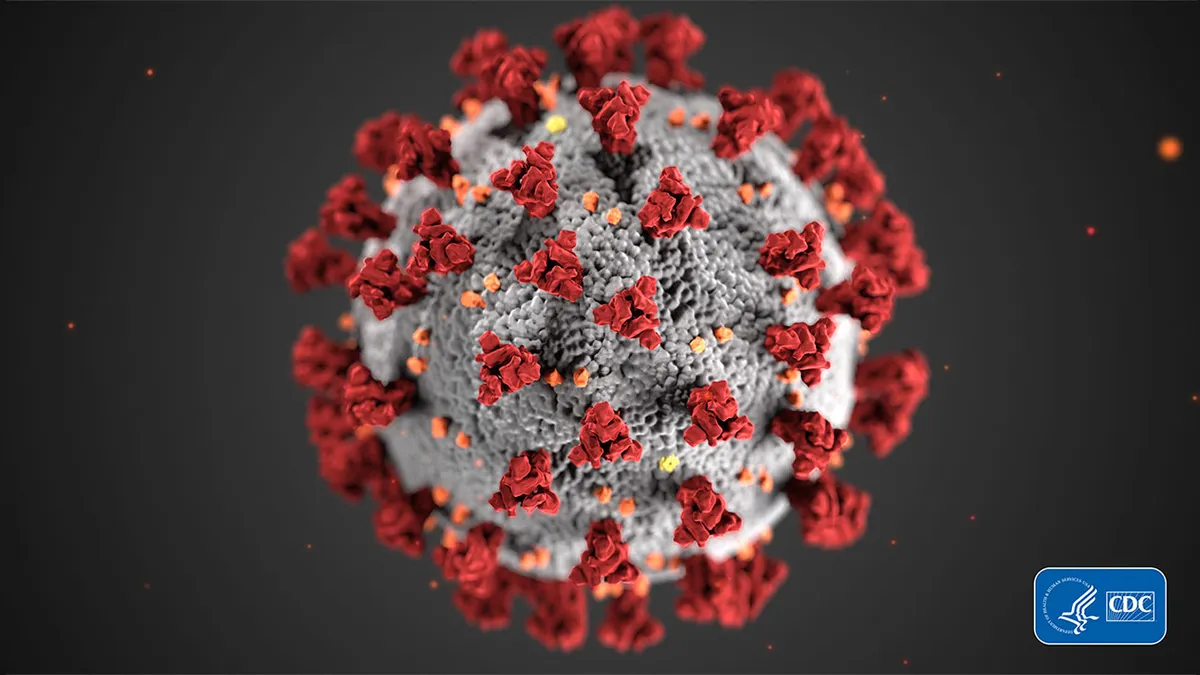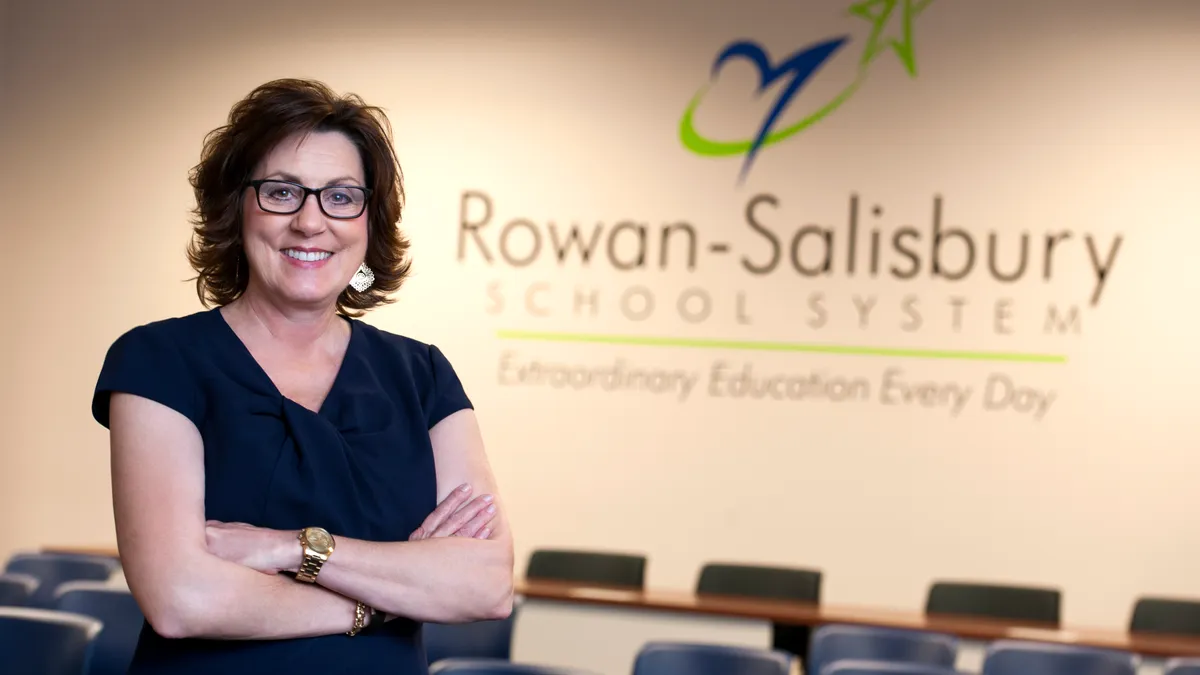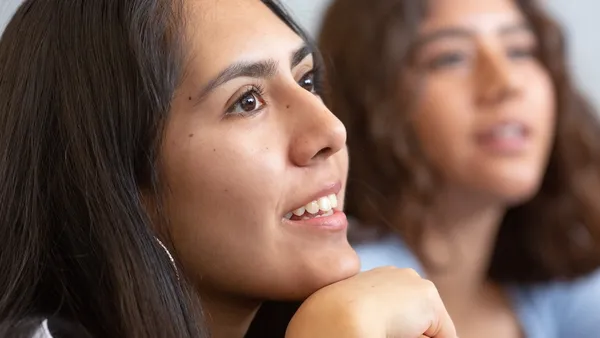Lessons In Leadership is an ongoing series in which K-12 principals and superintendents share their best practices and challenges overcome. For more installments, click here.
When Dr. Martin "Marty" Pollio first entered Jefferson County Public Schools in Louisville, Kentucky, as a basketball coach and teacher at Shawnee High School on the city's west end in 1997, he quickly learned leadership was one of his favorite parts of the job. That passion, along with a desire to effect positive school culture, saw him rise through the ranks to principalships and, finally, to the interim superintendency 18 months ago before being officially named the county's schools chief last April.
During that time, Pollio has worked to put systems in place that will create a more equitable learning experience for all of the district's students while also fending off a potential state takeover. Education Dive recently caught up with him to discuss how his coaching experience influenced his leadership style, what he sees as essential to building school culture and how he's continuing to work with the state to find the best solution for all stakeholders.
EDITOR'S NOTE: The following interview has been edited for brevity and clarity.
EDUCATION DIVE: With your background as a coach, do you see a lot of parallels between the way coaching a team in sports works compared to coaching everyone who works for you in the district?
MARTIN POLLIO: I really believe in the principles of effective coaching, whether it's athletics or anything else. Developing a positive culture with your team is so critical to that success within a school, so I really took a lot of the lessons I learned from coaching, because I think successful teams have a positive culture.
There's just something that great coaches do that allows teams to build this culture where they have a passion for the team, they care for each other, they're focused on the things that drive positive outcomes together, they collaborate together. All the things that we also would do in a school with our staff [to] build a positive culture for kids — a lot of those same lessons transfer over.
Coming into this role, I feel that it's my responsibility to build that same type of culture among the leaders within the district so we can influence more teachers, more educators and, most importantly, more kids with this positive culture. There is no doubt the lessons learned in coaching translate, whether you're a principal or a superintendent.
And with building positive school culture becoming more of a focus nationally to the extent that a lot of states have added metrics for that in their plans under the Every Student Succeeds Act, what are some things that you think every school and district should absolutely be doing, at a base level, to improve their school culture?
POLLIO: There is no doubt from a district perspective that having an effective school leader is critical for a positive school culture. That's No. 1, defining what it means to have a positive culture.
In education, we throw around the words "culture" and "climate" all the time, but I really believe that it's incumbent on us to really define for our leaders what it means in Jefferson County Public Schools to have a positive school culture, what we expect principals to do to support students and staff, and what indicators we would look for when we come into a school to identify positive culture. It's, without a doubt, critical to have system-wide thinking from a district perspective to produce positive culture.
From a district perspective, what we need to give people to do their job effectively is several things. No. 1, the supports they need for kids, so we provide more systemic supports for our students. No. 2, we provide the tools that they need in order to be successful. We provide the professional development that they need. We provide the curriculum support that staff need, teachers need, in order to be successful. So we're working on that now, but definitely giving people what they need to be successful.
And finally, I would say that on culture, we have really worked to accomplish in JCPS the concept of a North Star — that everybody in the organization has to feel there is a purpose for what they are doing collectively. Beyond just showing up for work, or just showing up for the kids that are in their classroom or on their roster, there is a collective purpose as an entire organization that we are working toward. Some people might call that "vision." We talk a lot about purpose or a collective North Star that we work [toward] together, and then every school reflects that North Star. When we do those things, we'll have a positive culture, and so that's what we consistently work toward here at JCPS.
On a student level with school culture, how important do you see the school's approaches to discipline being in the efforts to foster a positive culture?
POLLIO: That gets to student support. Throughout my career, I've grown and somewhat evolved in my thinking. I've said all along that we must have high expectations for students — for everybody. We must have high expectations for how students behave and act in a school culture. But where I've really evolved is that we must have equally as high supports for students. That's where I think our district has not done the job that was needed in the past — systemically providing supports for students.
Most people would not argue that, most times — especially in younger children — when there are behavior issues, there is often an underlying reason or need for support that a child is really asking for. For us to provide the effective instruction and meet the students' needs, we've got to support that student. We have really worked to provide those systemic supports so we can address the issue causing the problem.
We really are working to increase those supports. For example, we're committed next school year to providing a mental health professional at every single one of our schools. That's a big challenge for us, but we heard our stakeholders, our teachers and our principals say many of our children are suffering from unmet mental health needs, and we need to try to meet those needs.
That's all a part of a plan to support students. We're also asking all of our schools to build systems of support. We want academic interventions at every school, but as equally, we want behavior interventions at every school. So, if a student is not proficient in math and skills in math, our schools are actively providing interventions so that we meet those needs. It's got to be the same with discipline. If a student is struggling with discipline, yes, we have to have high expectations for them, but we also have to provide interventions to meet those needs of the student with supports from the district.
I believe when students feel that sense of belonging, then discipline problems reduce.
From a district leadership perspective, what are some of the challenges that come up when it comes to ensuring all students across the district have access to the same high-quality opportunities and supports and resources regardless of whether they're in, say, Shawnee High School or duPont Manual High School?
POLLIO: This is where really the word "equity" comes in. Not "equal," but providing schools and students with what they need to be successful. And then, in turn, providing each school with what they need to be successful.
The challenge for us at JCPS is that we have been a district of 156 schools without a systemic view of the work that we want to do. When you do that, you essentially have 156 independent contractors. That's when you get disproportionate outcomes, and when you don't have a systemic view of support of schools and expectations of schools.
Where we really have to get in is we have to look at those supports with the equity focus in mind — that those schools that need additional supports, that might need additional personnel, additional technology, whatever those might be — that you are providing those schools with what they need to be successful. But that's a challenge to build. A challenge is the size and the amount of schools we have, but the only way to be successful at that is to take it with a systemic view.
You recently dealt with some pressure from the state regarding a potential takeover. For superintendents who also find themselves in that position, what are some things they can do to work with their states to avoid that scenario, like JCPS did?
POLLIO: It is critical for the leader of the district to recognize and acknowledge the issues that are in the district. All too often, it's easy to get involved in a political argument about the state takeover that was happening this past summer.
As superintendent, I felt my job was to recognize and acknowledge the problems we have, stand up, and also celebrate the successes we have, because we have a lot of successes here. We have a lot of great things happening. But as the superintendent, I had to say, "Here, I'm taking the results, the deficiencies, from this audit that has taken place." I have to acknowledge that we have issues and problems and begin to attack those problems.
It was important for me to say, "Let's build a system in this district that is going to address these issues or problems," and begin the process of fixing that. Obviously, there were a lot of battles being played out in the media and in other ways. I felt it was my job to move forward and just do everything I could to make this a great district and begin that process.
Secondarily, I had to know that the people in the Kentucky Department of Education — quite frankly, they're all educators, the people we work with on a regular basis, and they want the same outcomes and the same goals that we do, which was for our students to be successful. From the very beginning, we opened the door and said, "Let's collaborate to make this successful and really begin a collaborative relationship," because one-seventh of the students in the state of Kentucky go to Jefferson County Public Schools. So for the state to be successful, JCPS has to be successful.
Almost a year and a half ago, we received the first part of the audit results with some deficiencies, and we opened the door and said, "Come with us and help us create a corrective action plan together. Let's meet regularly. Let's talk about ways we can work together to support our kids."
When you develop that collaborative relationship with the state department and the educators that work there, you tend to come together and say, "We're going to do something great for the kids of Kentucky and JCPS together." And we've had that collaborative relationship. So outside of the whole agreement process, our work with the Kentucky Department of Education has been very positive.







